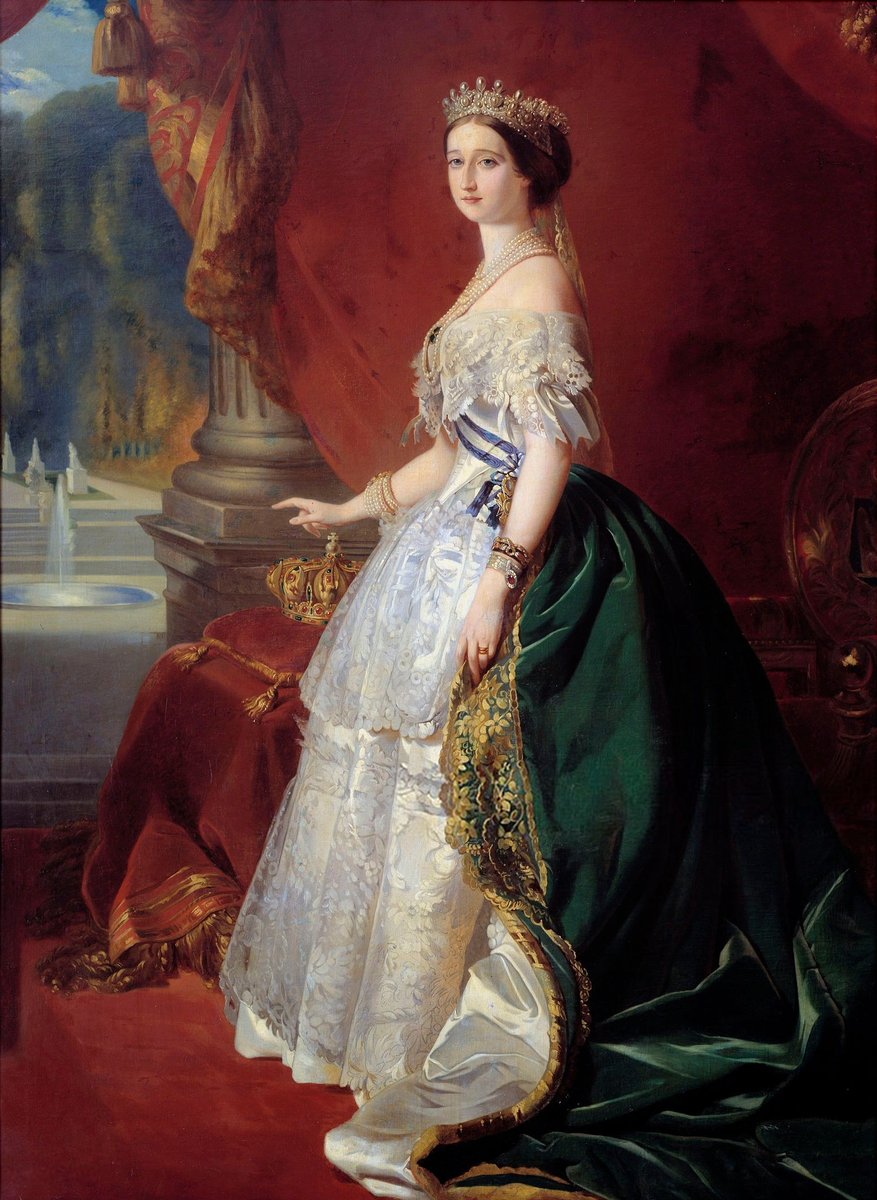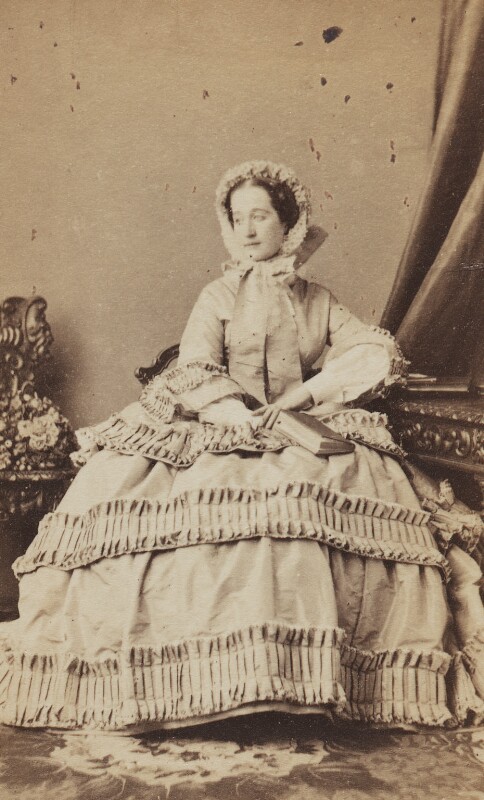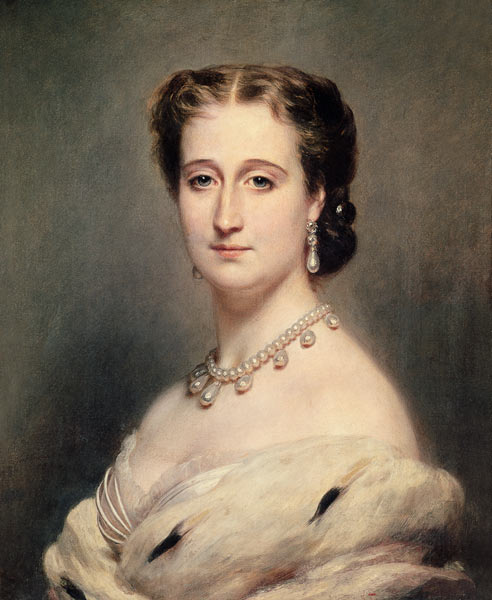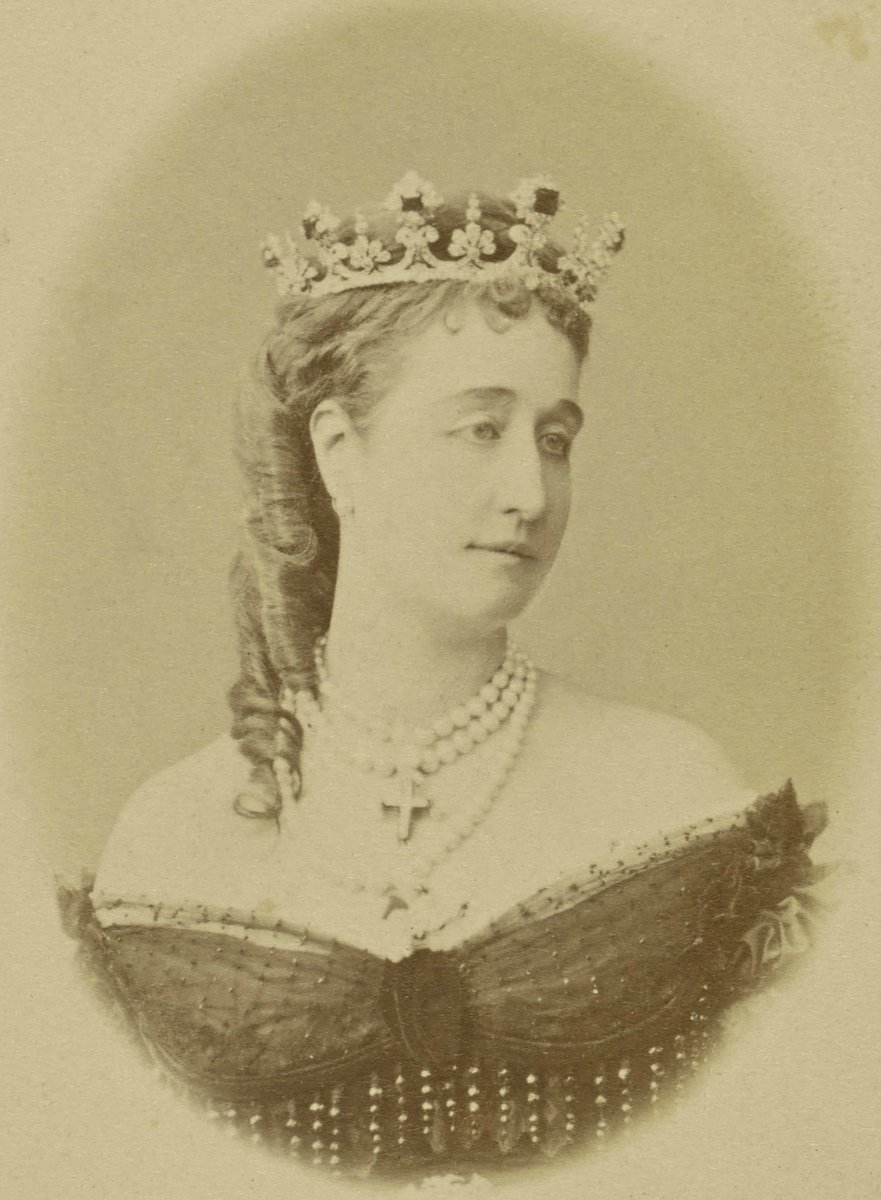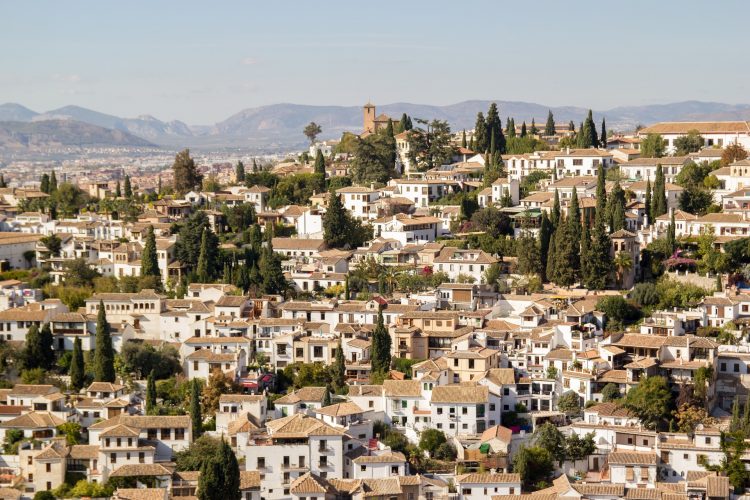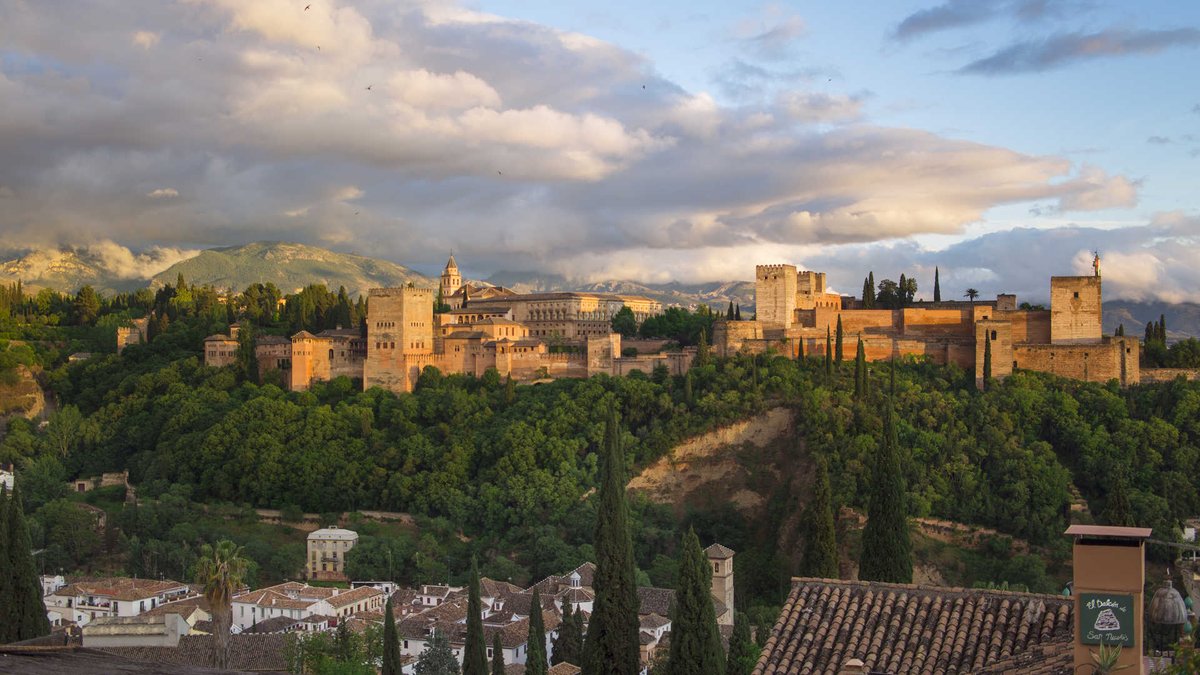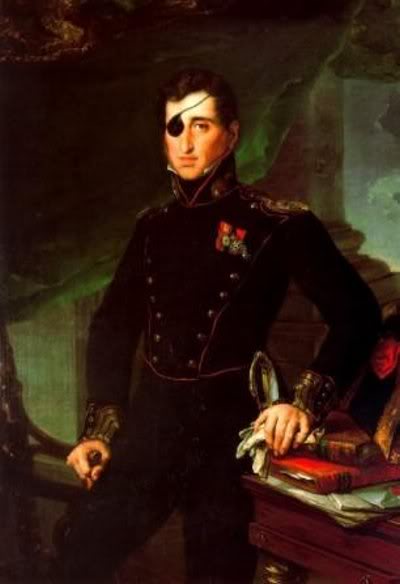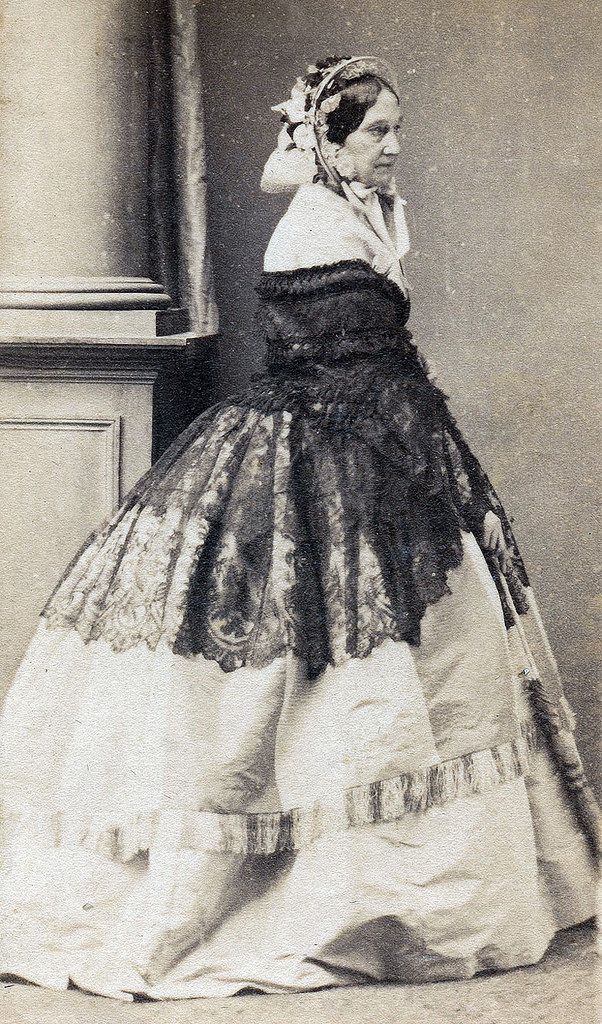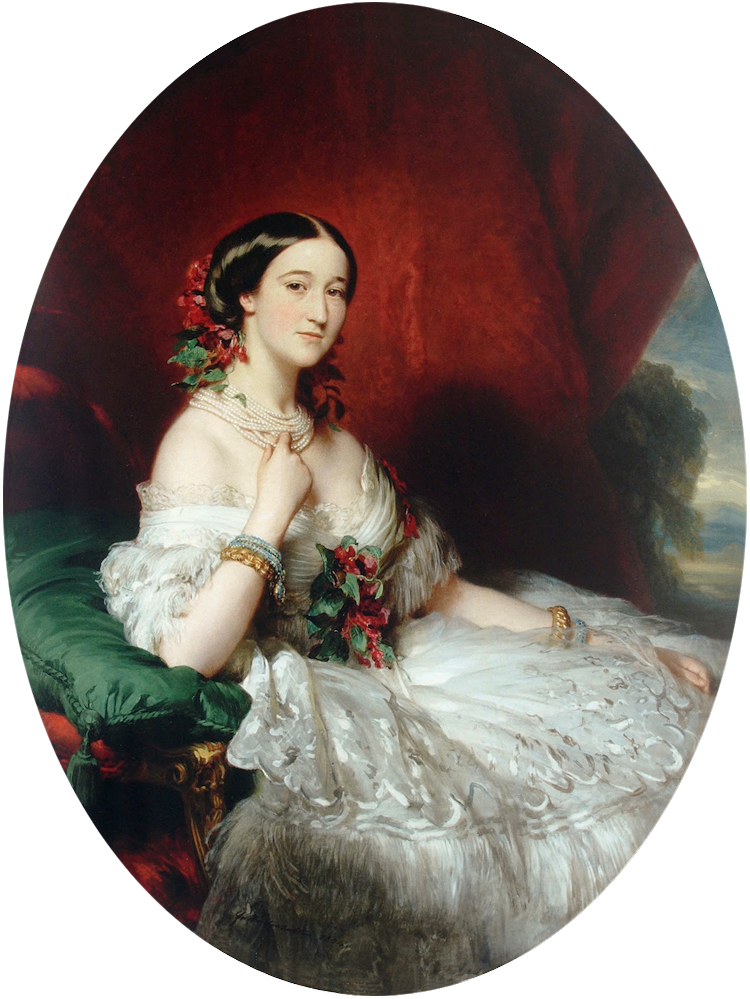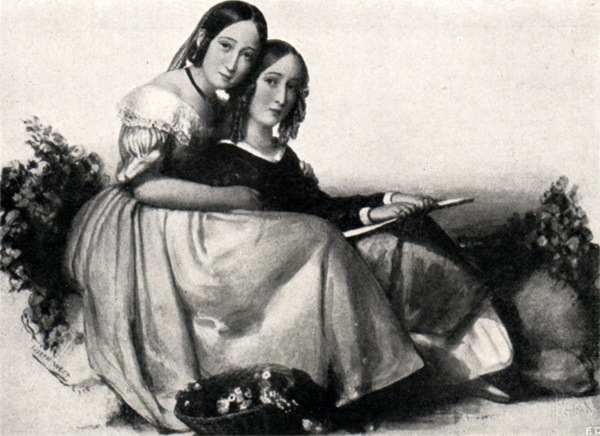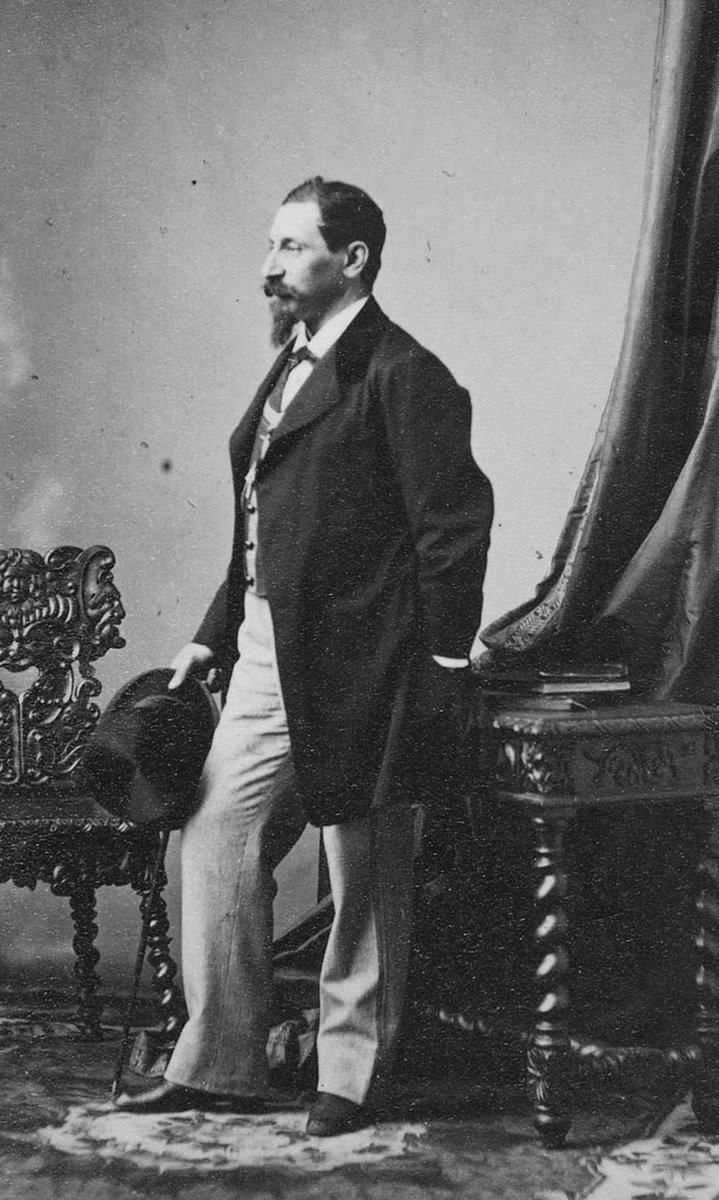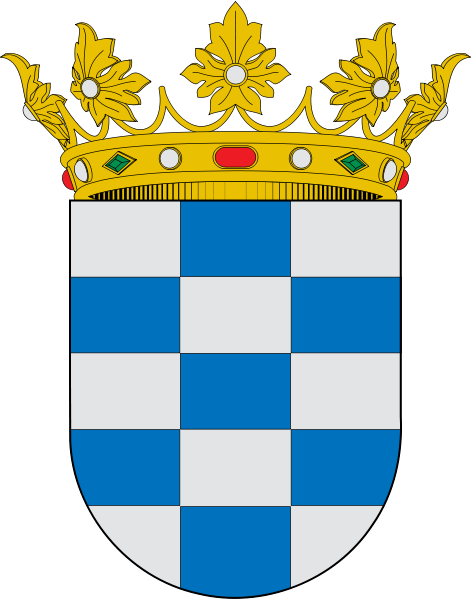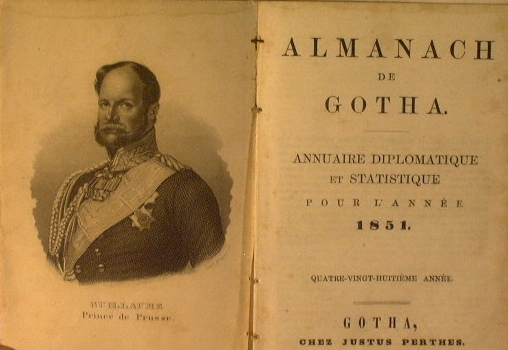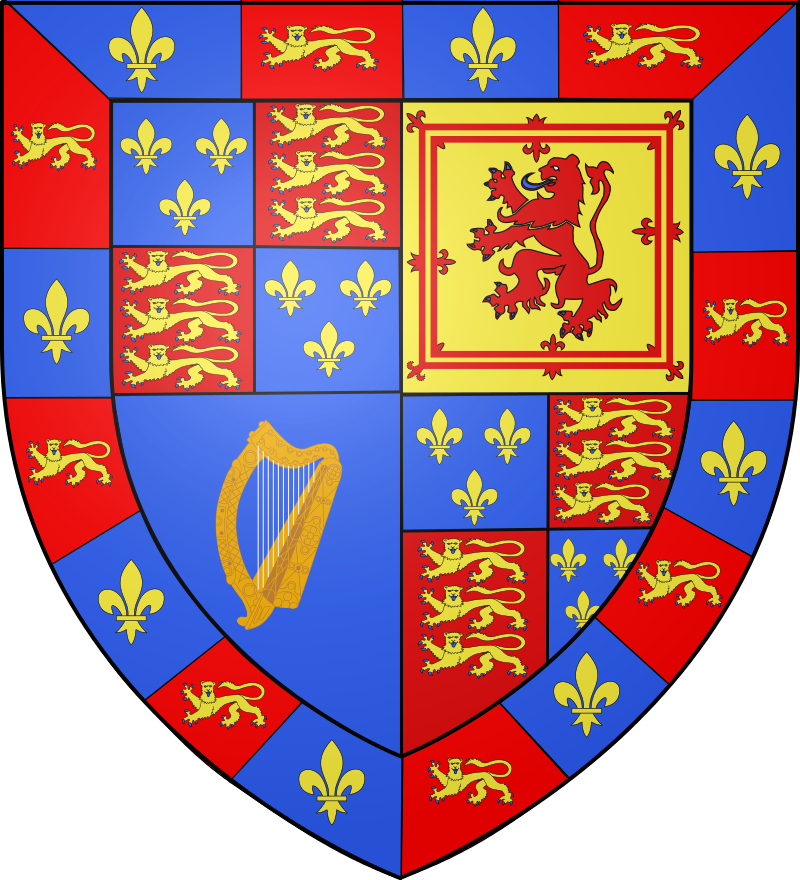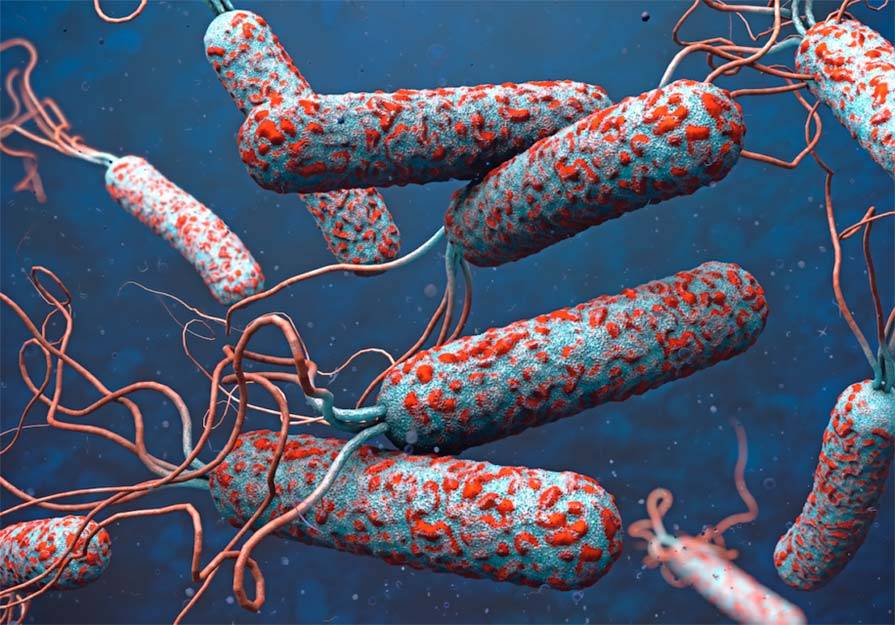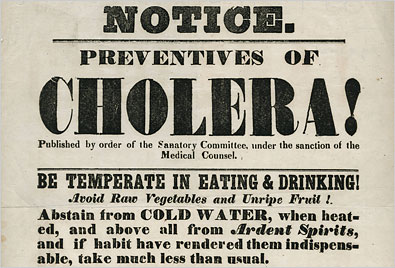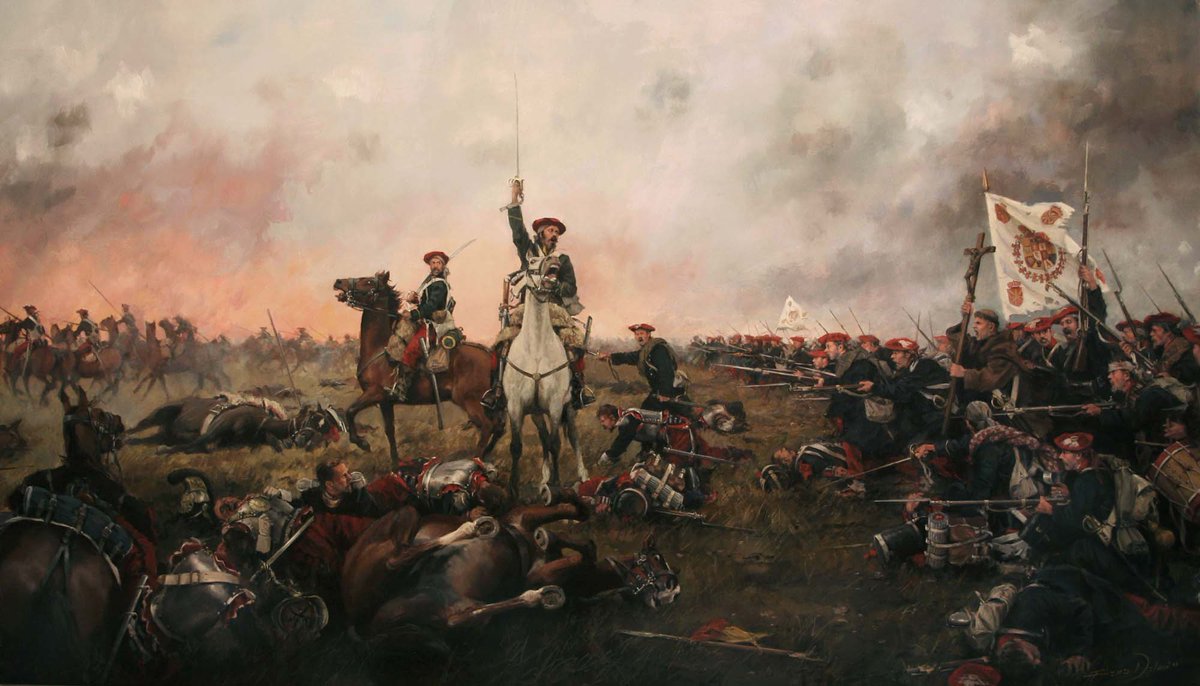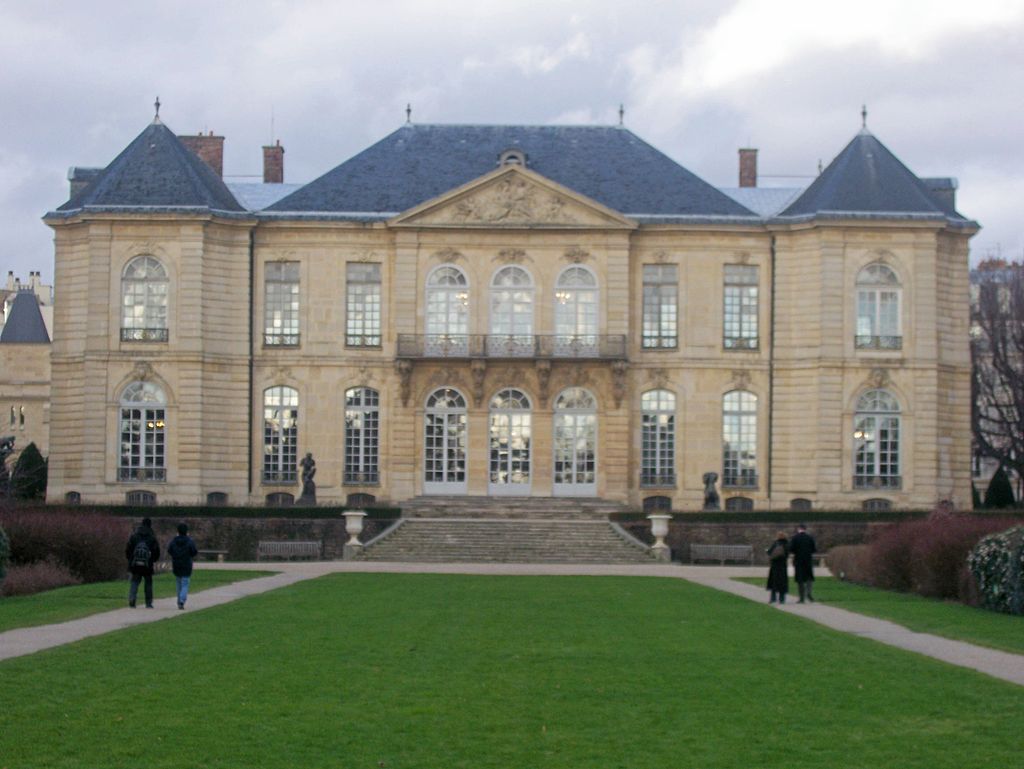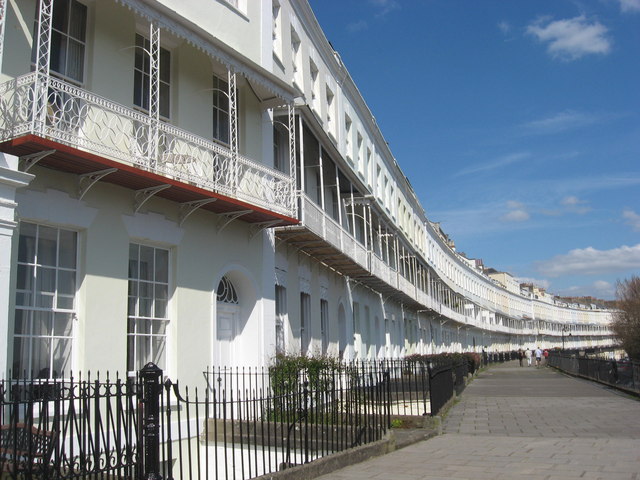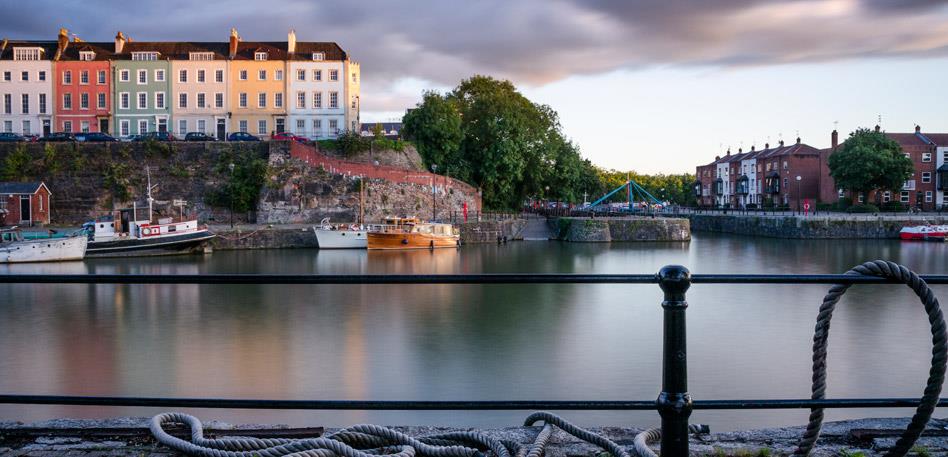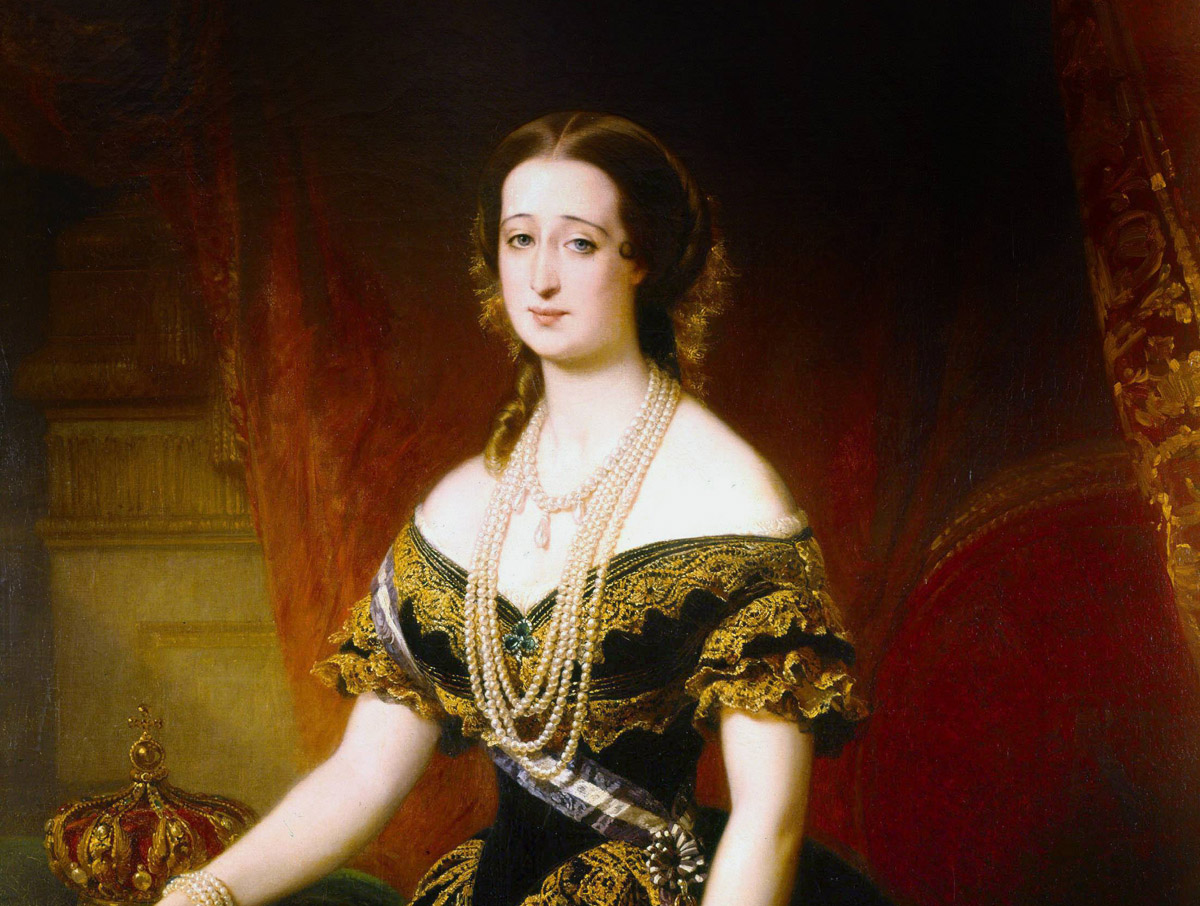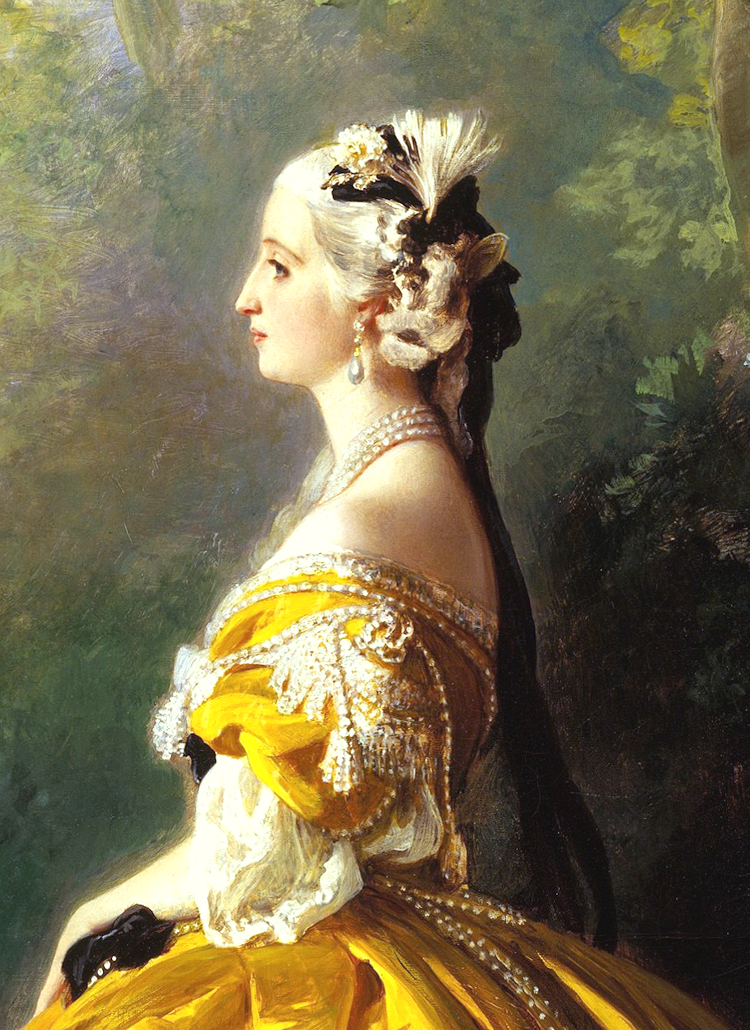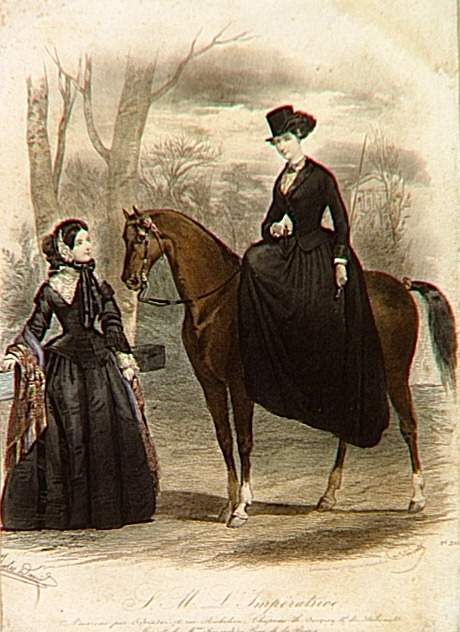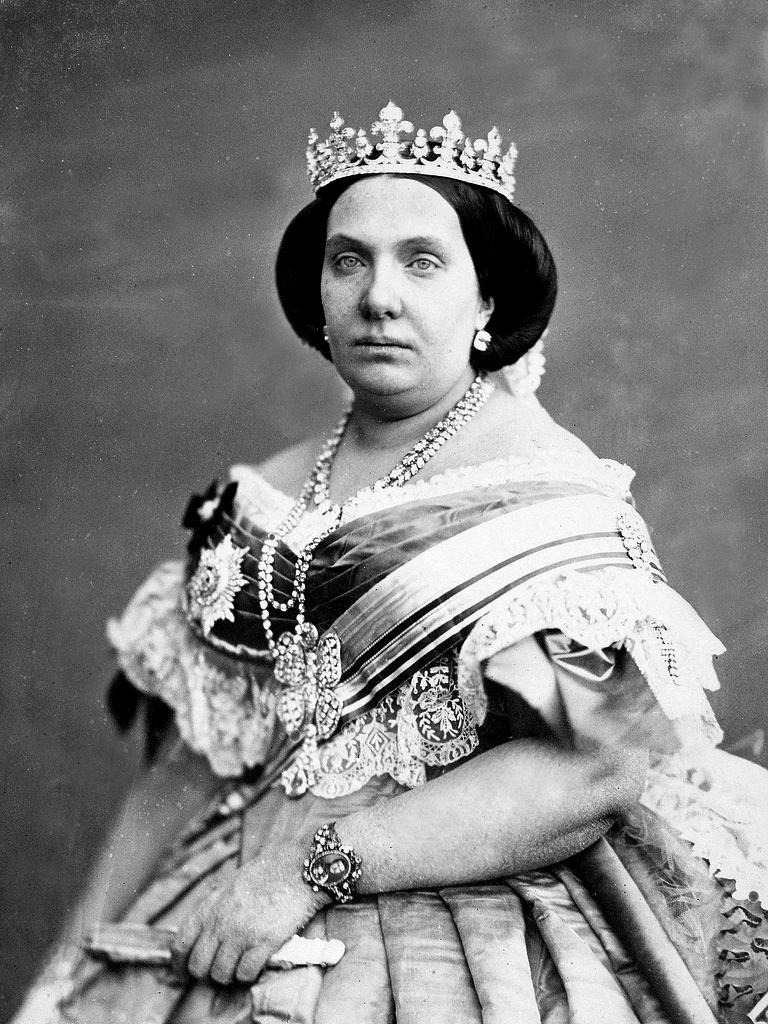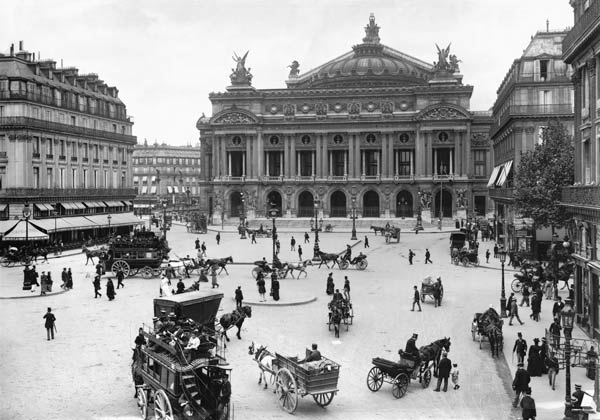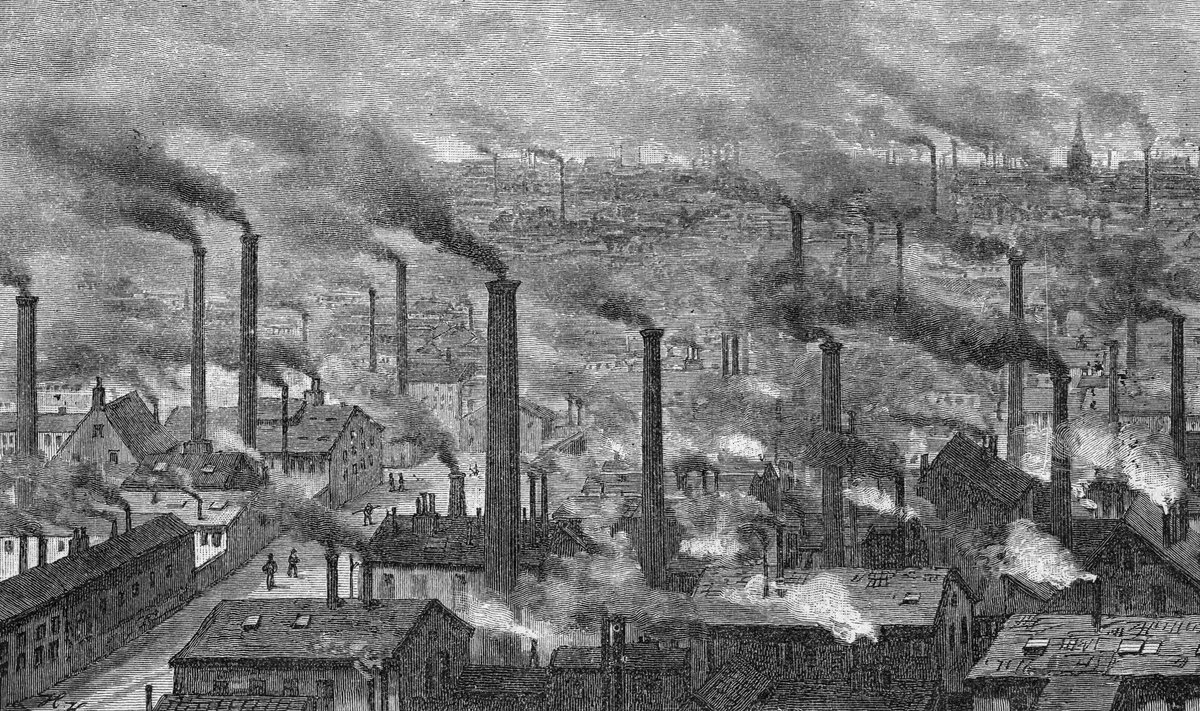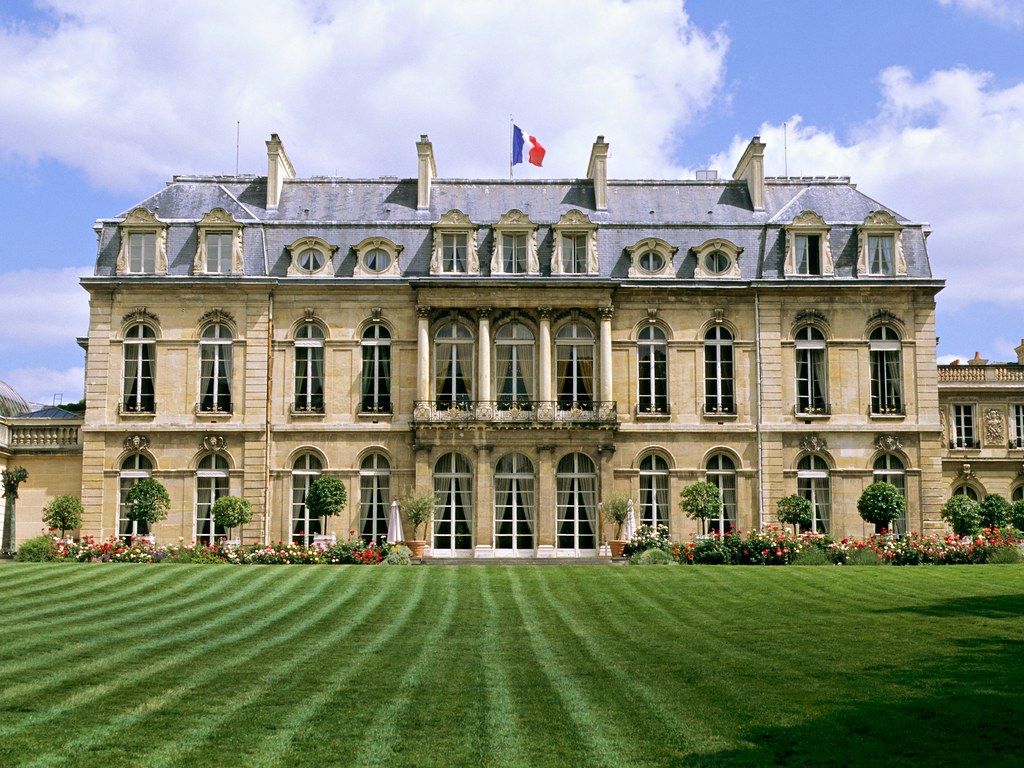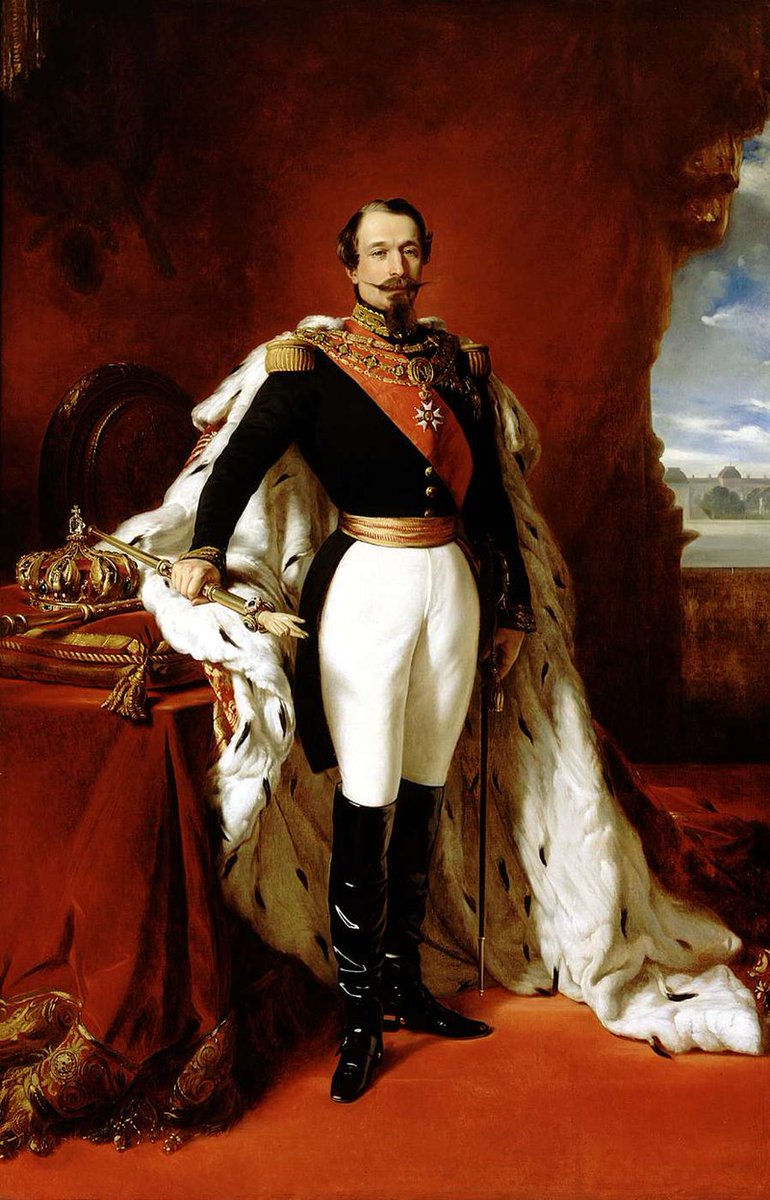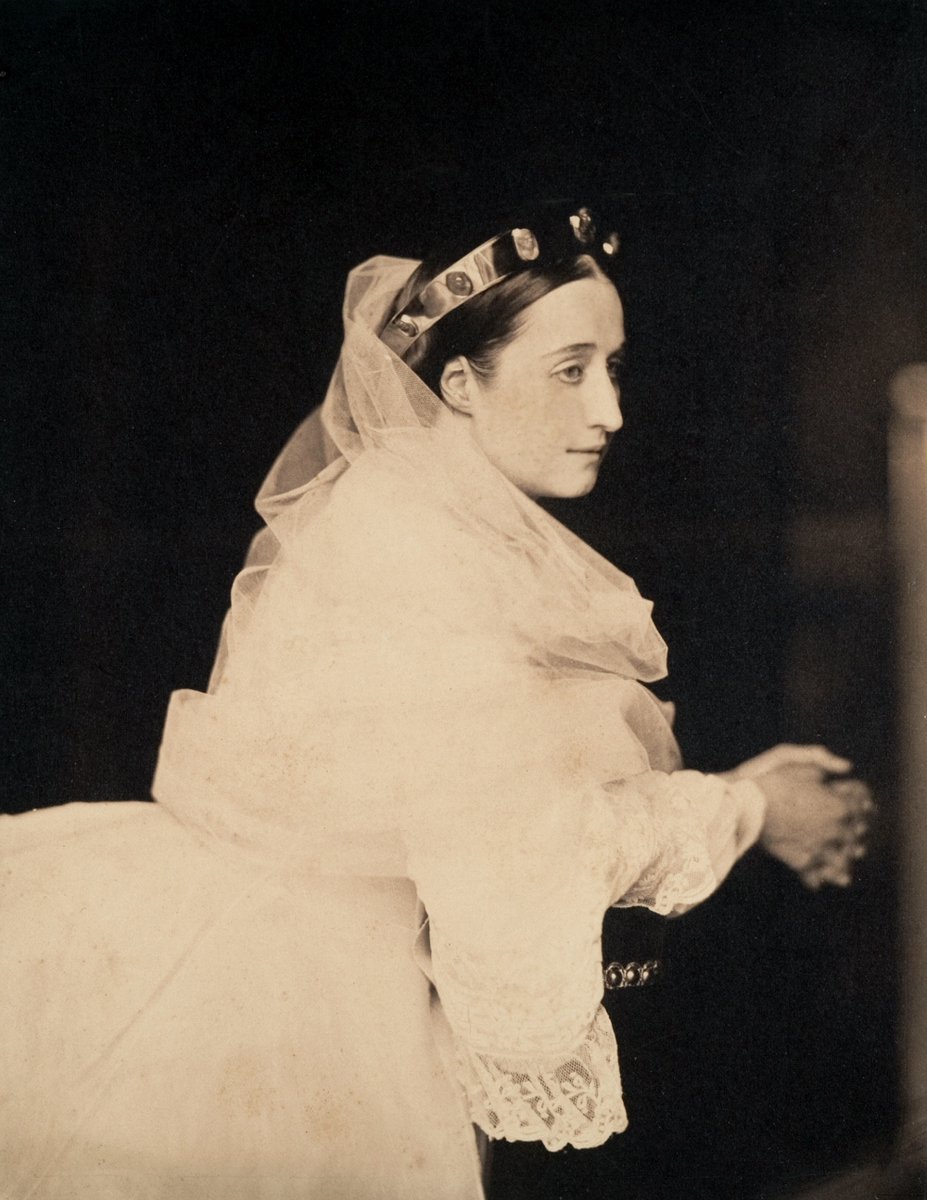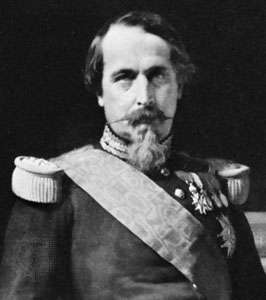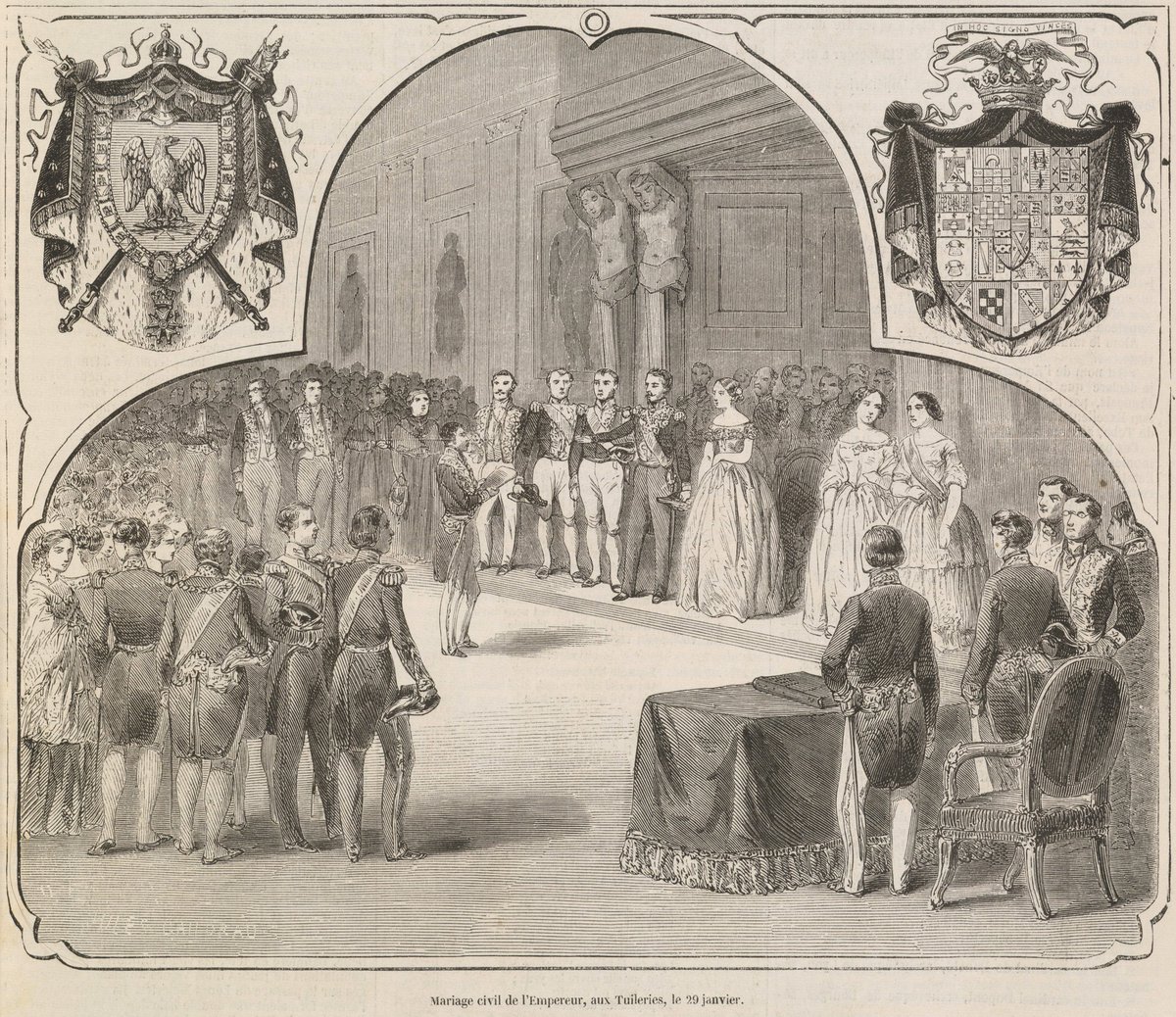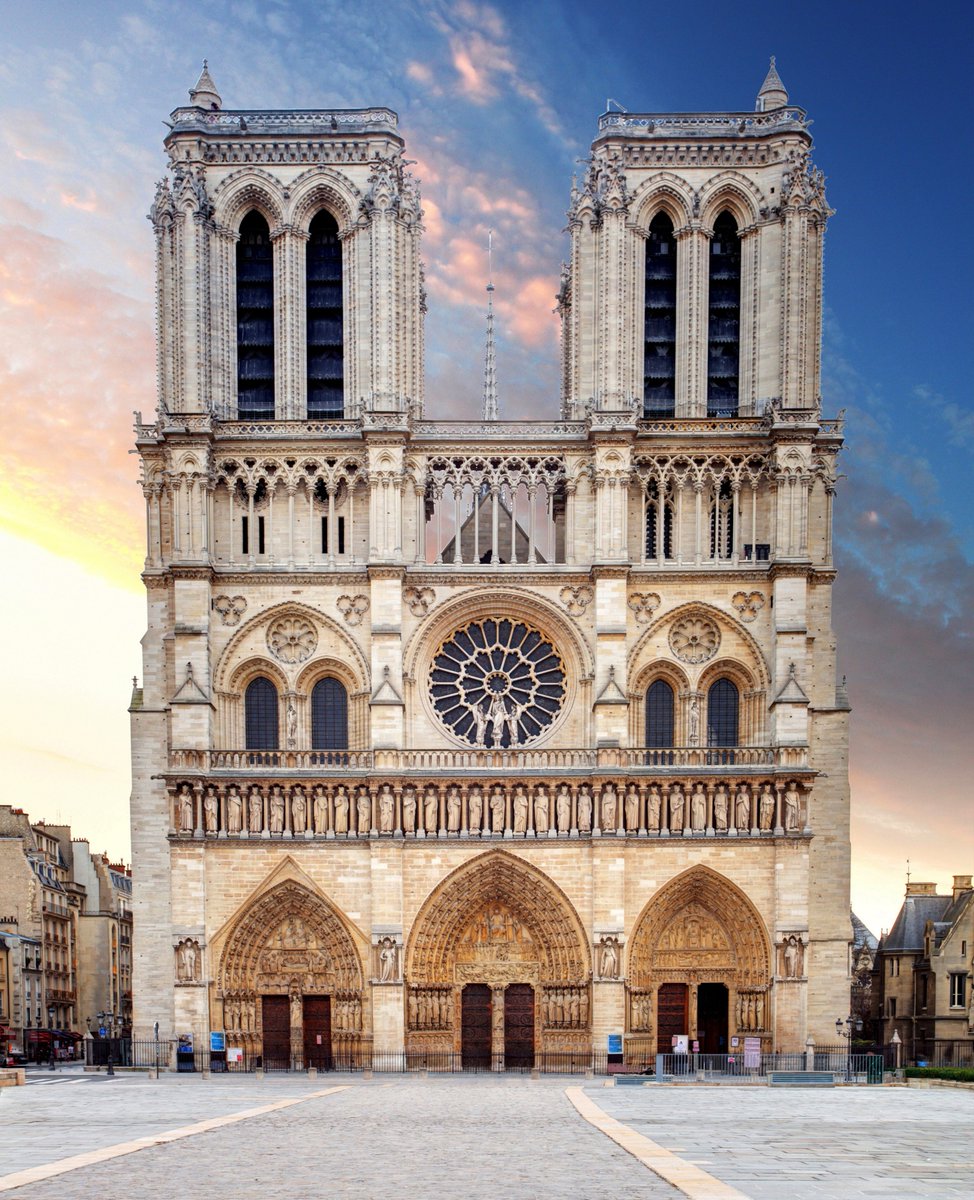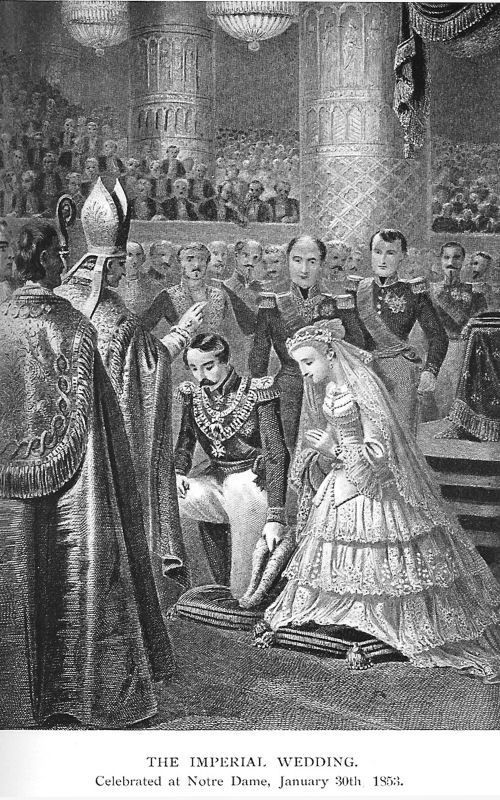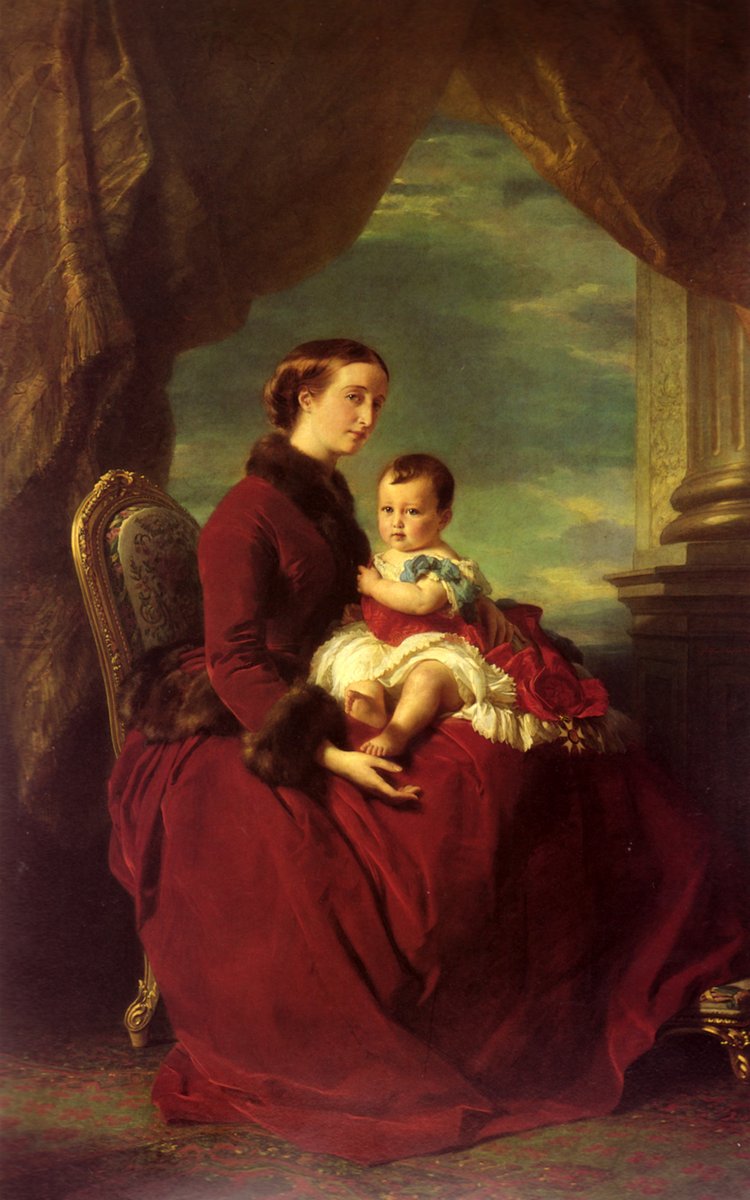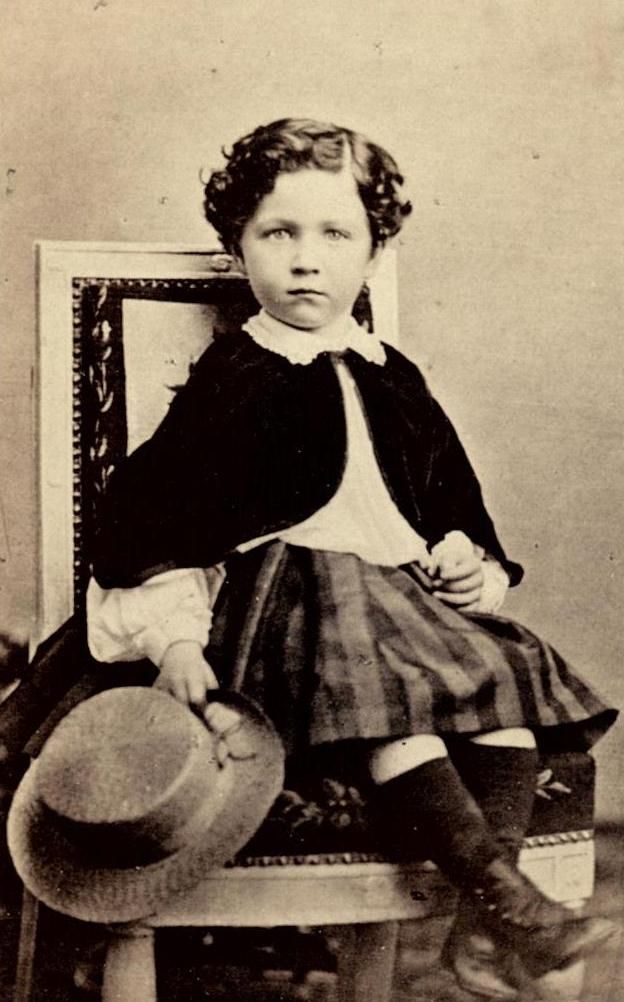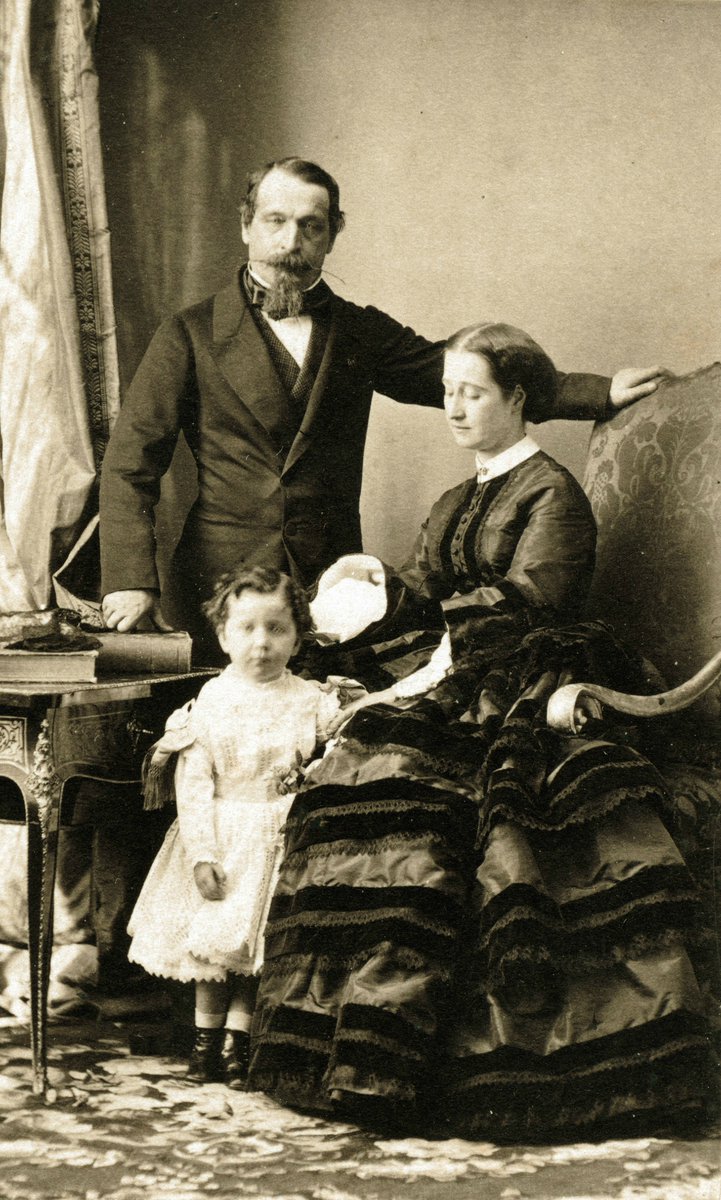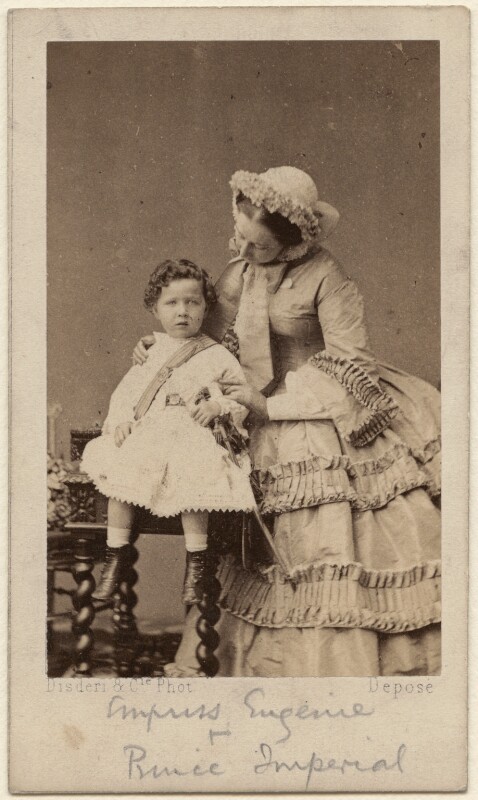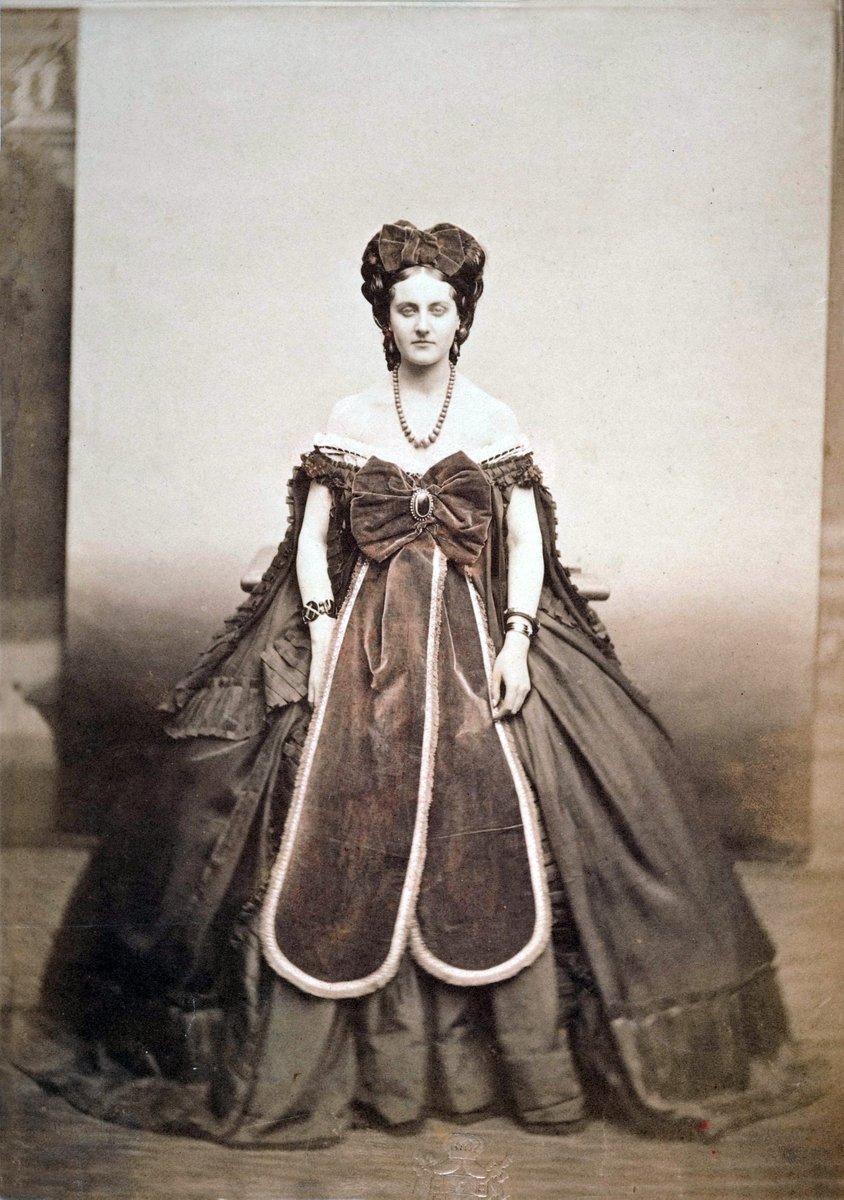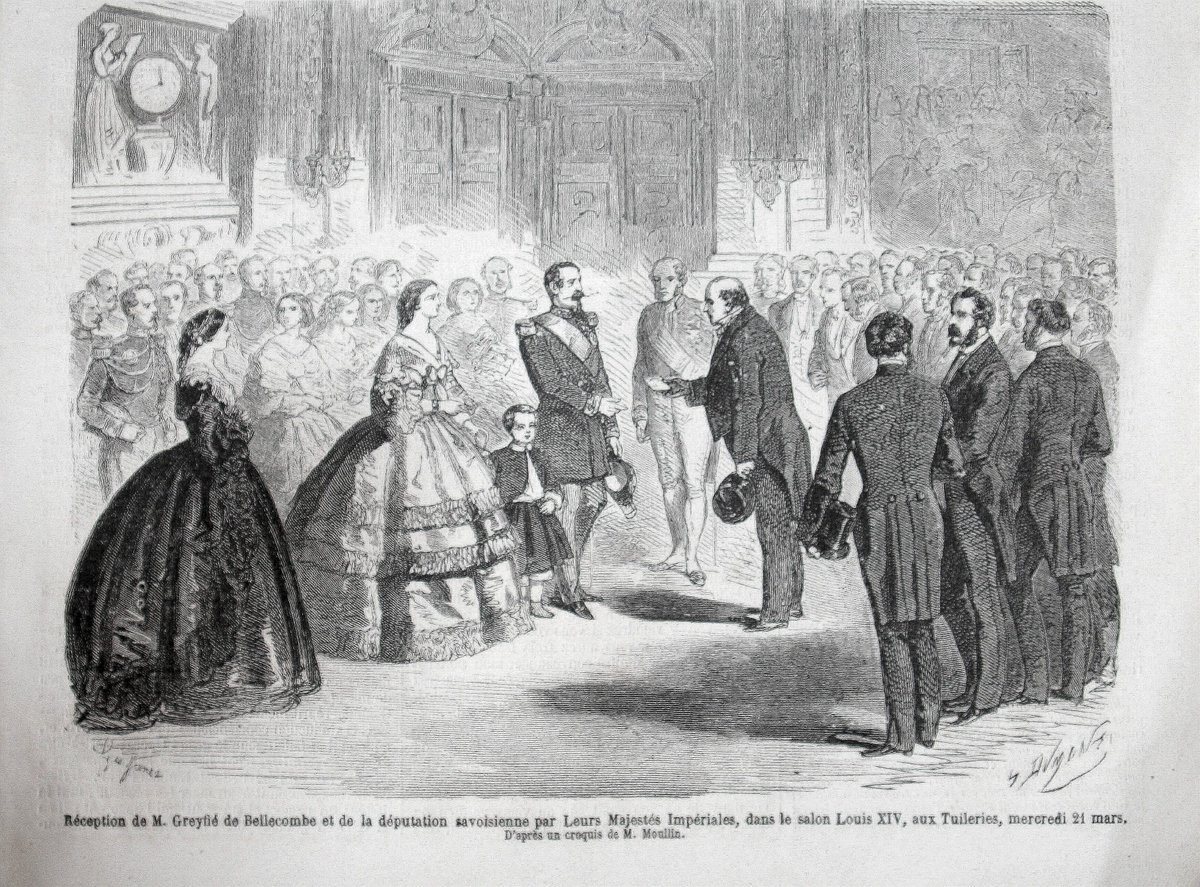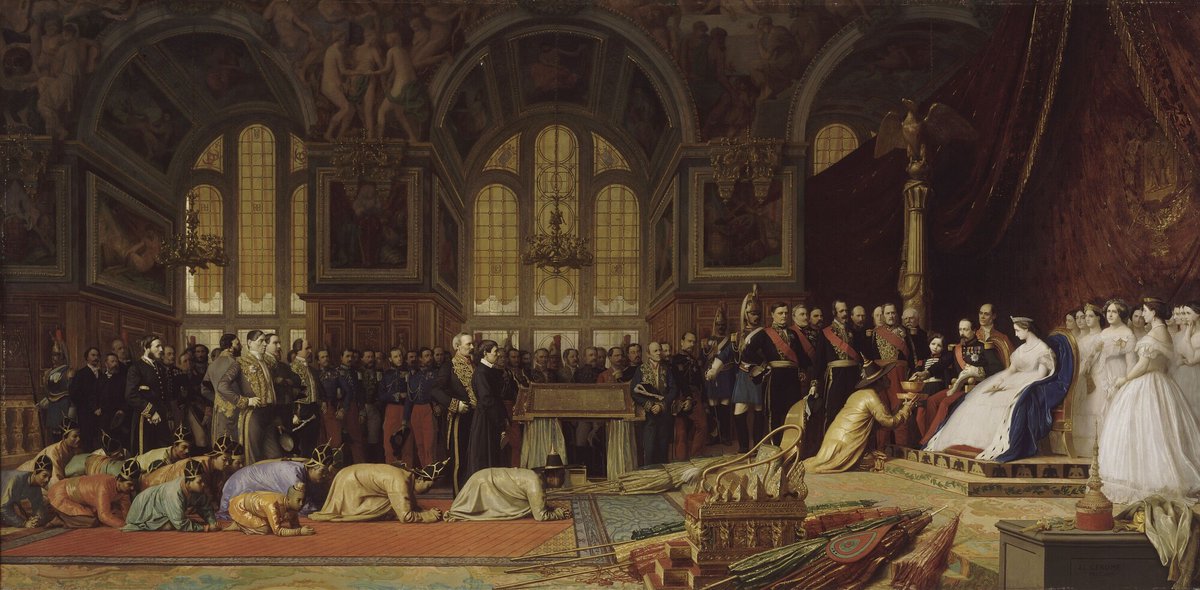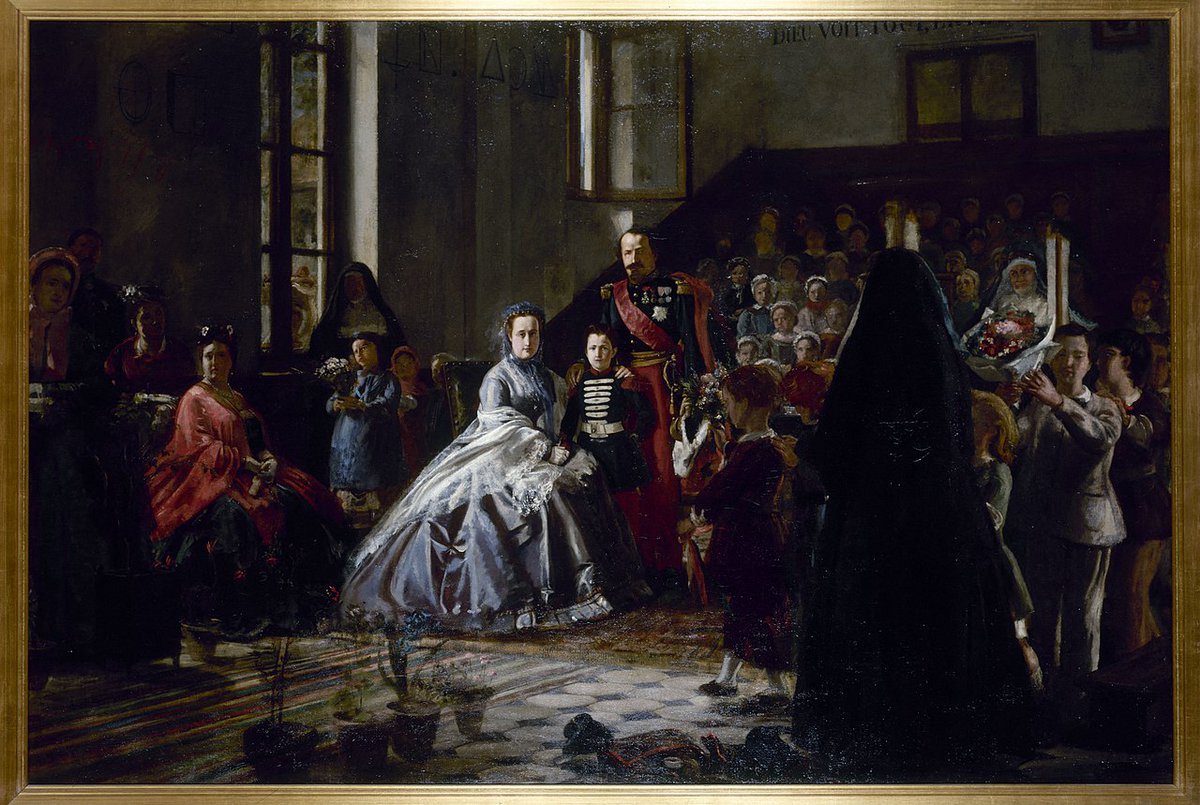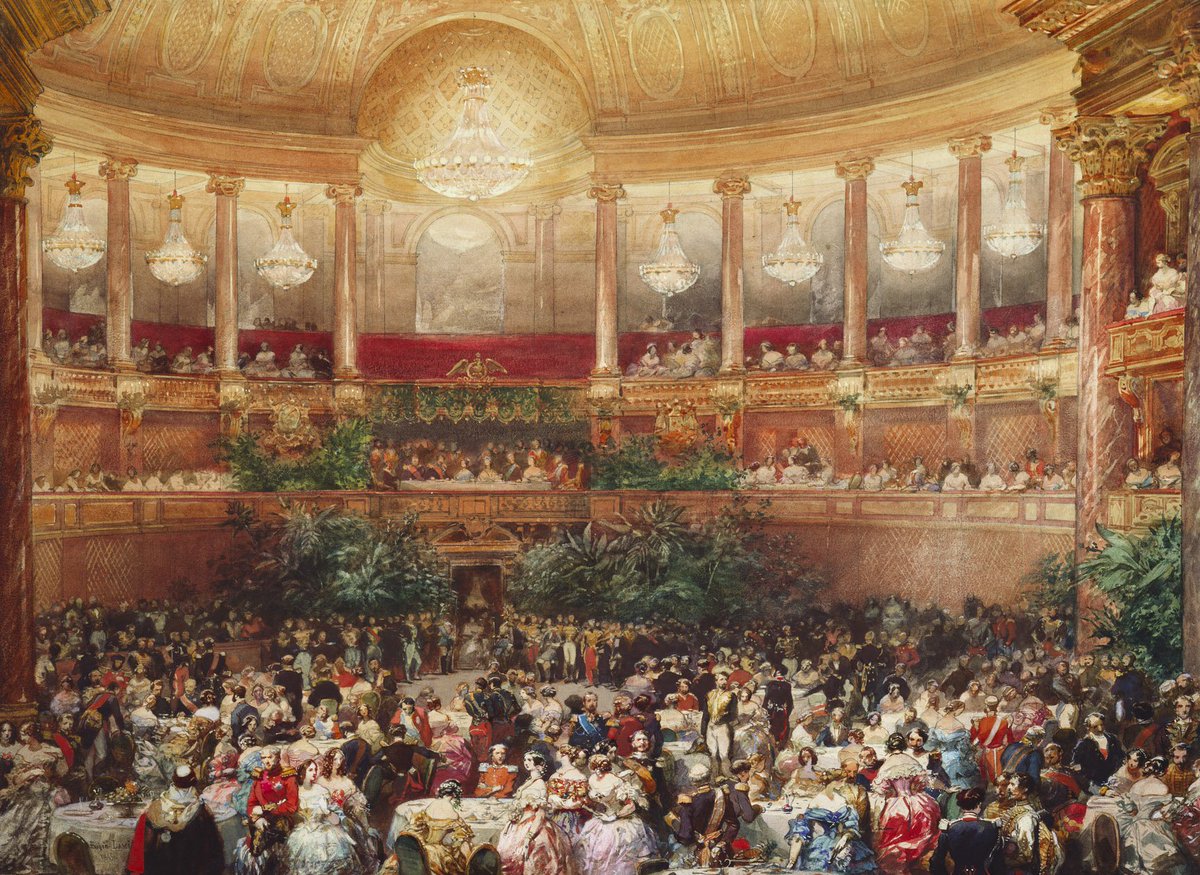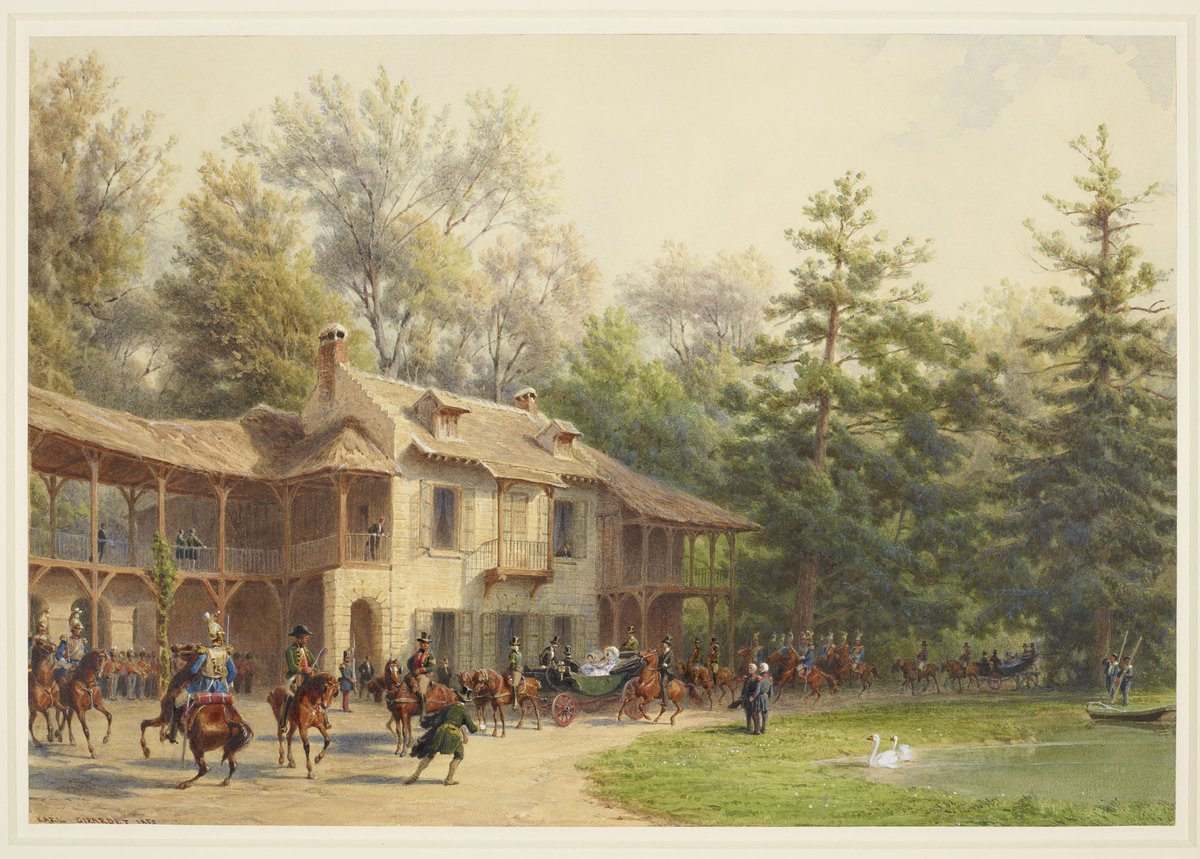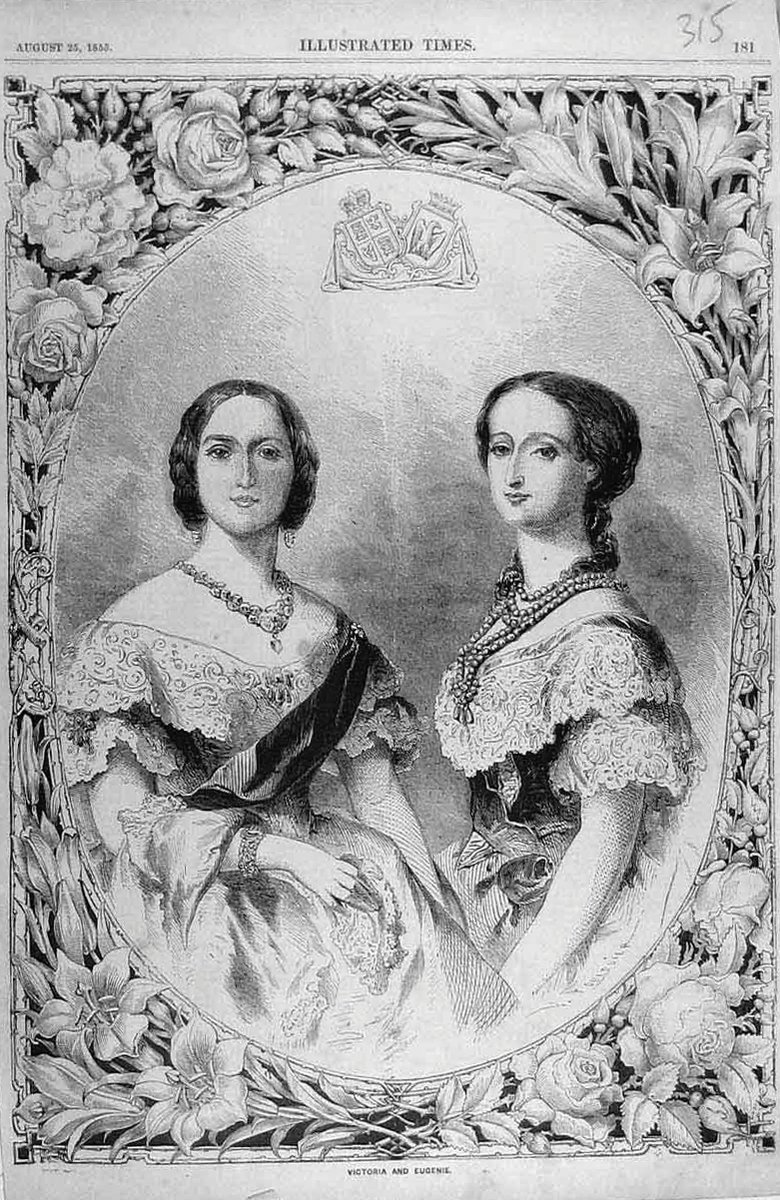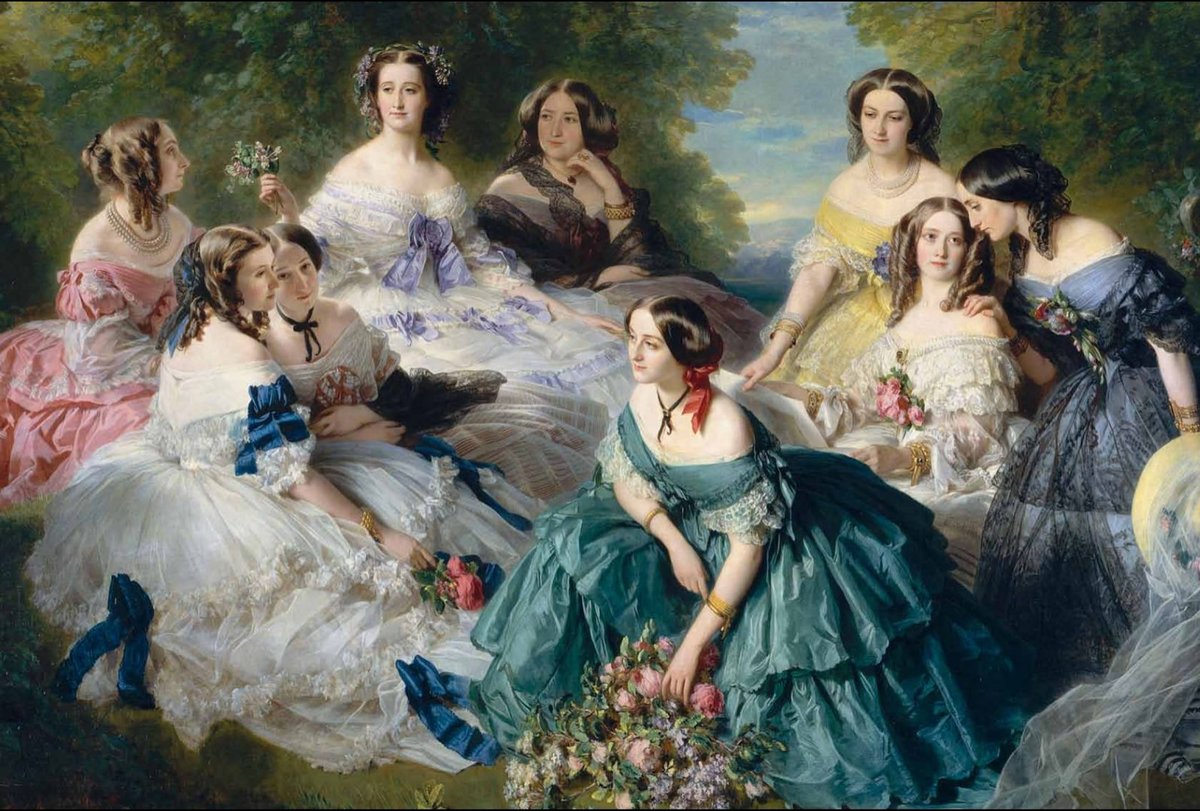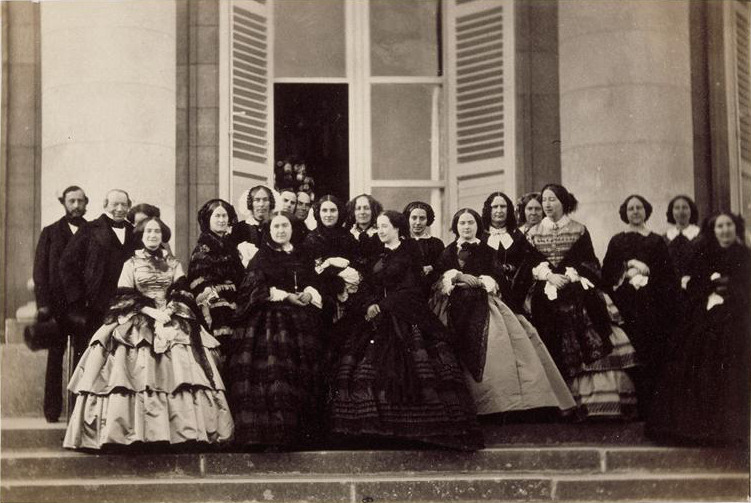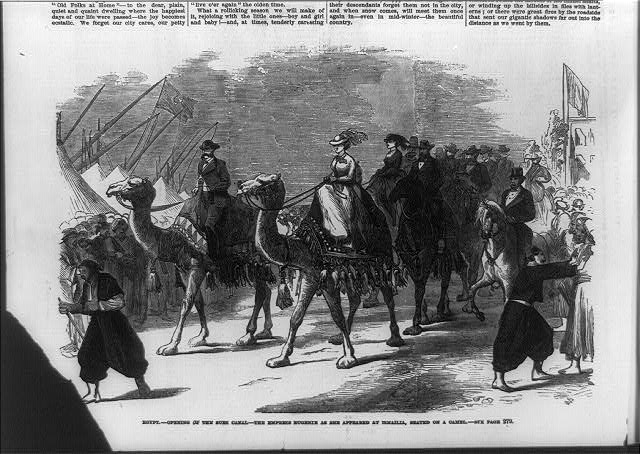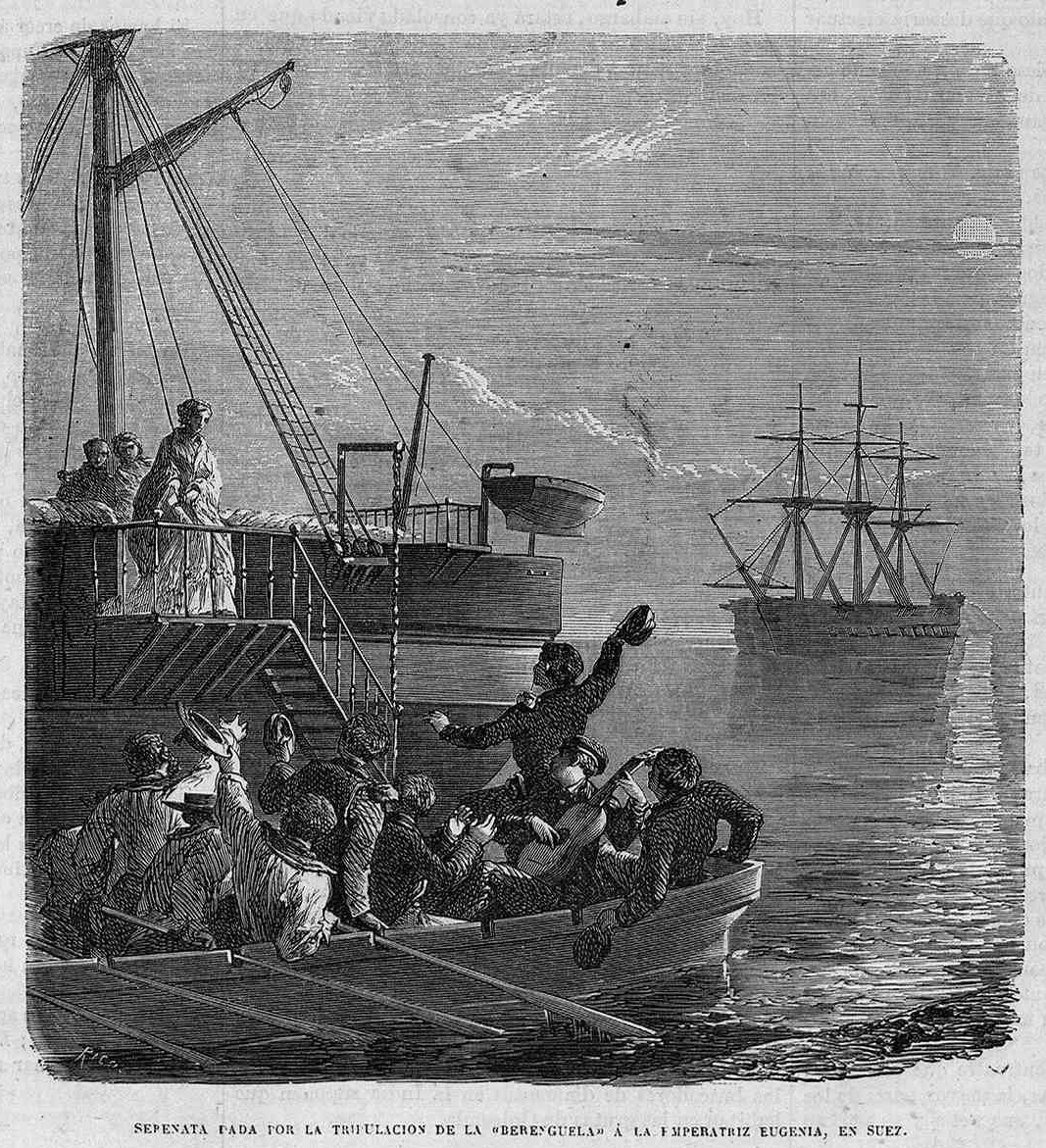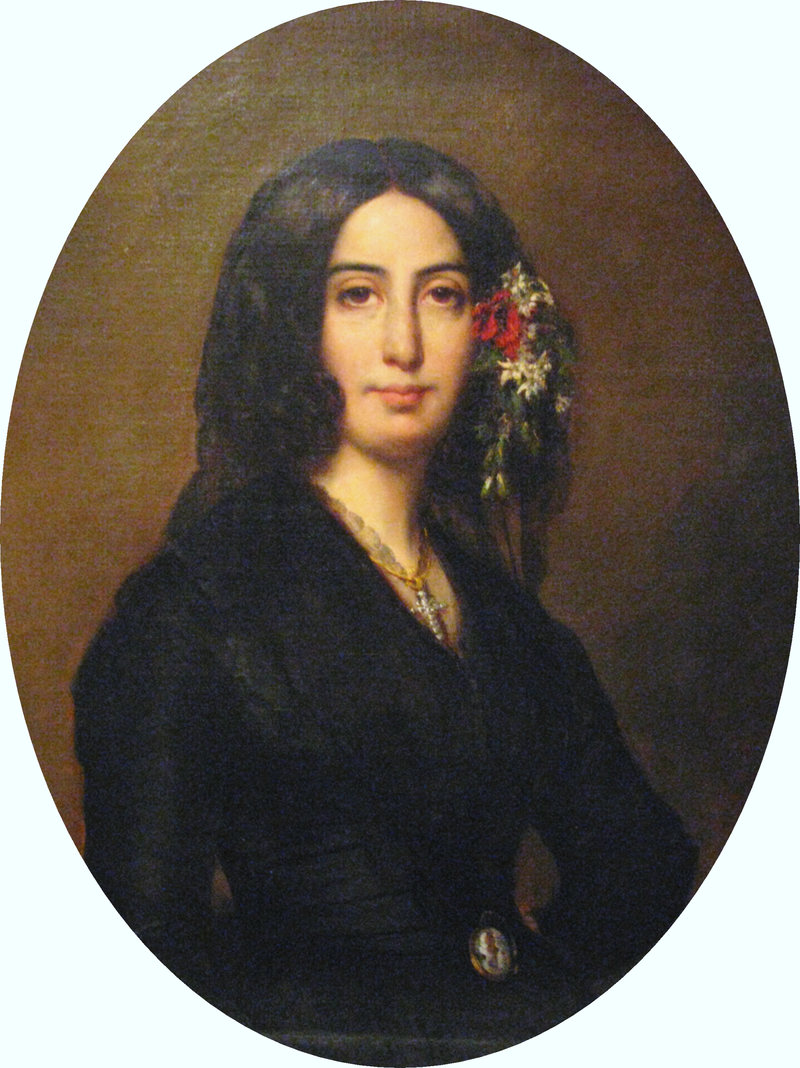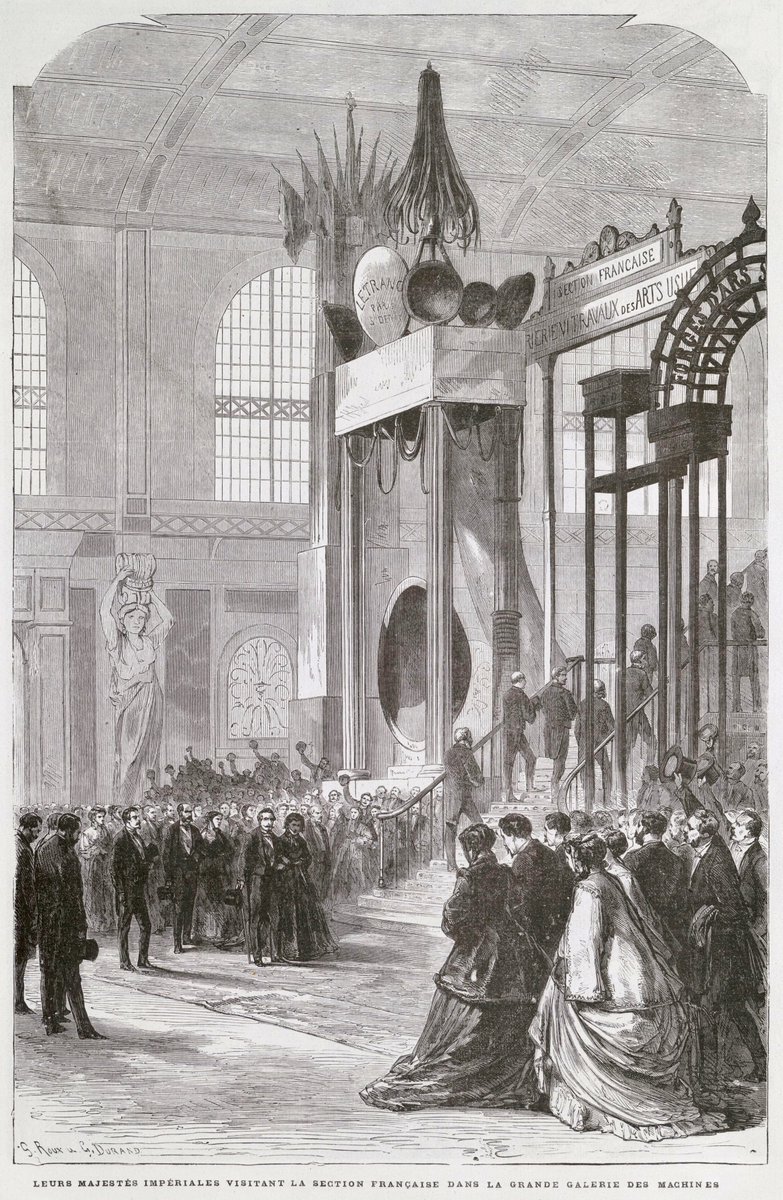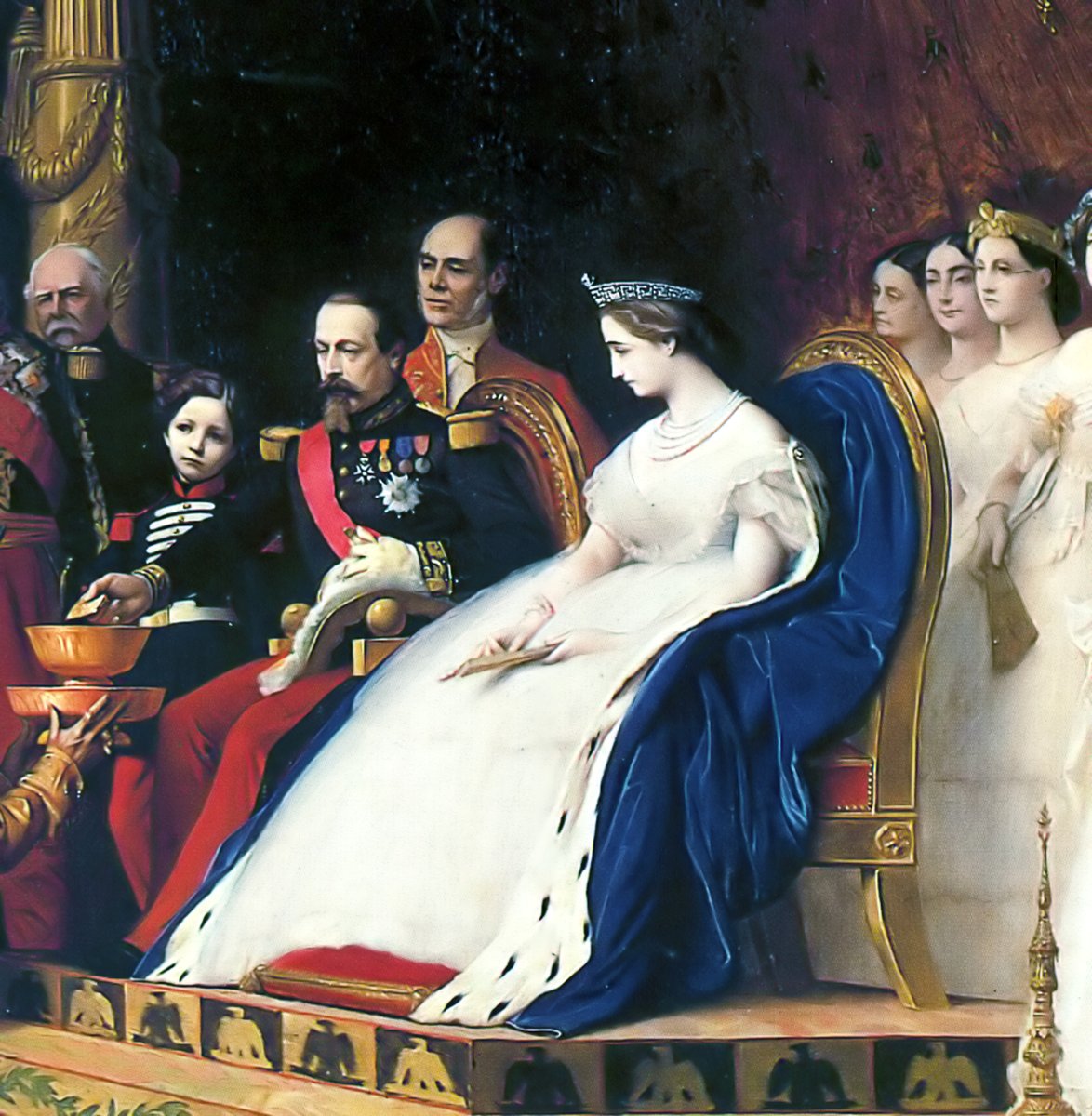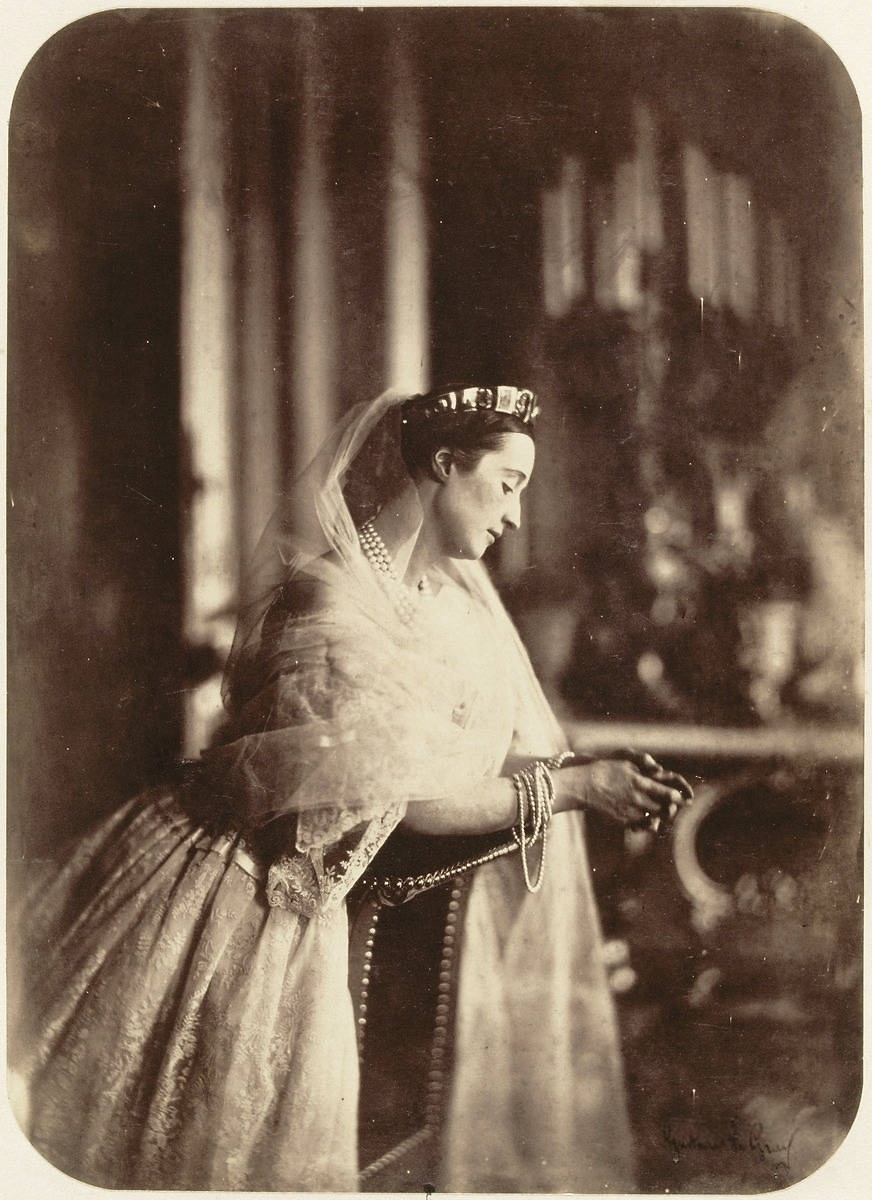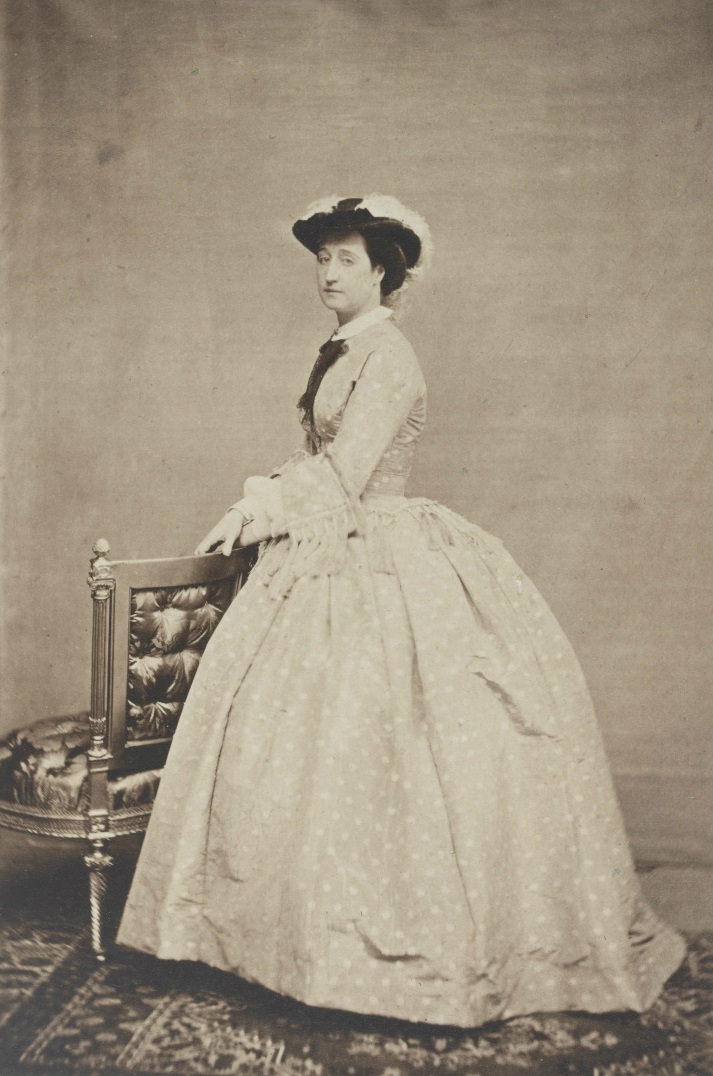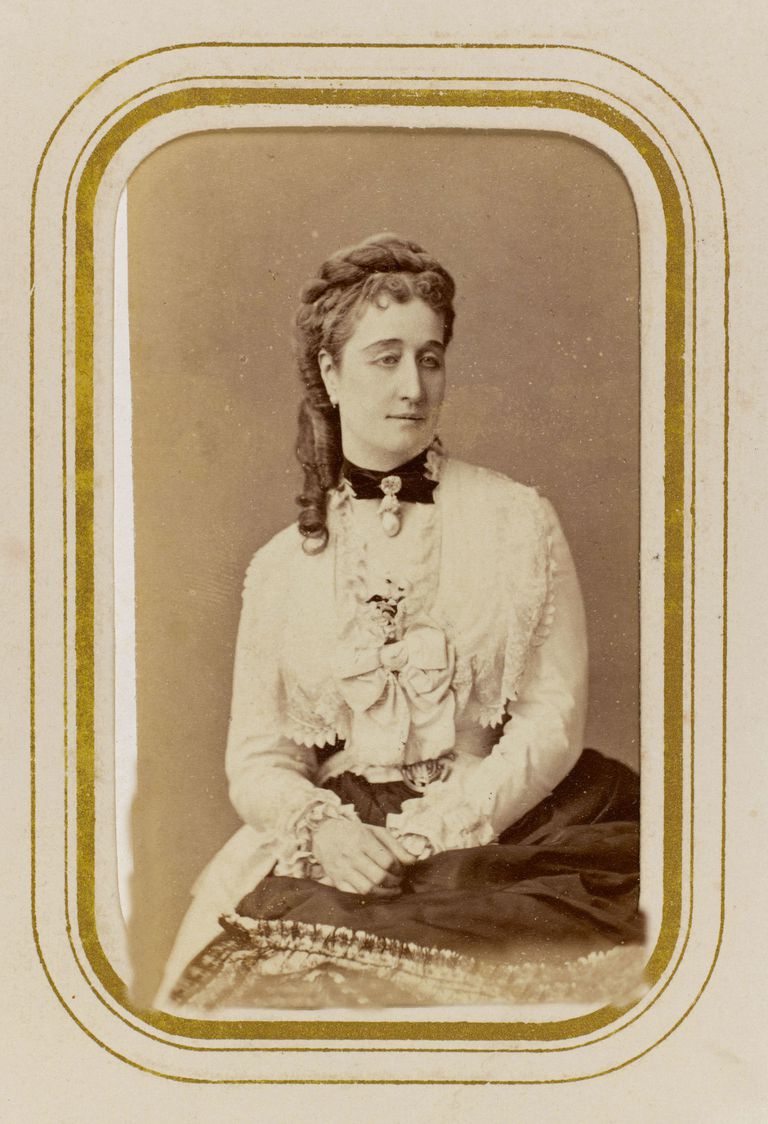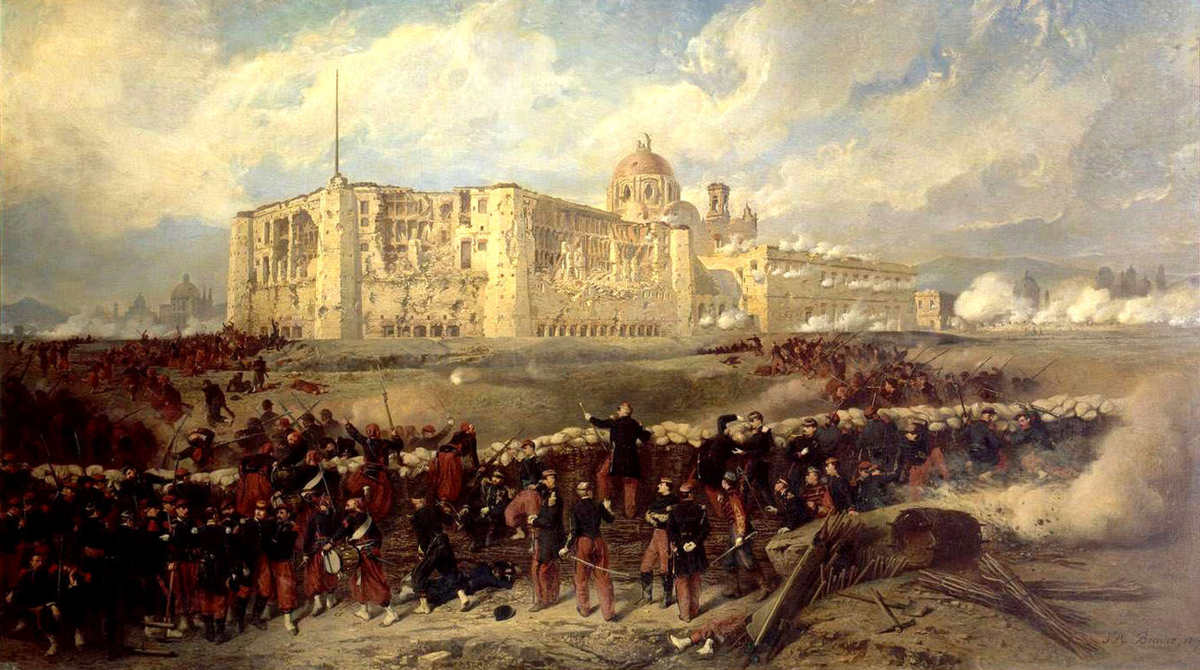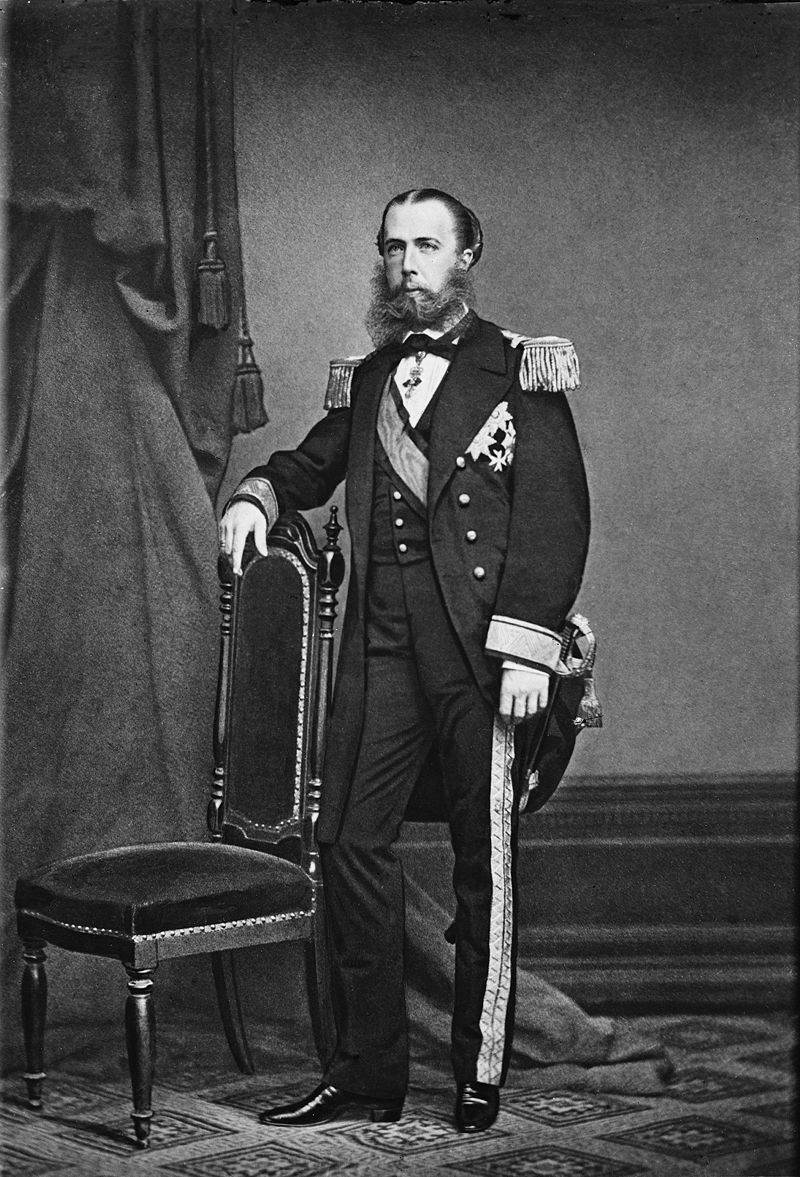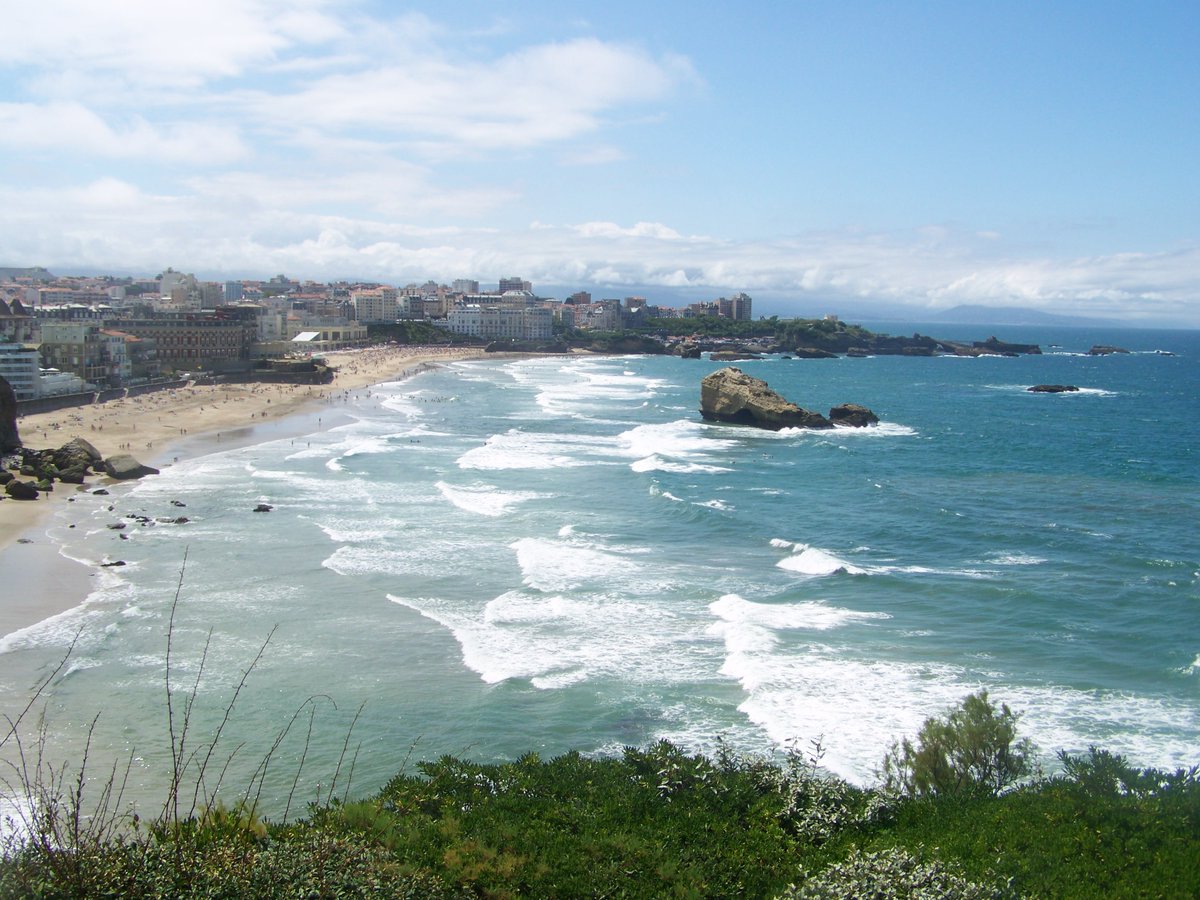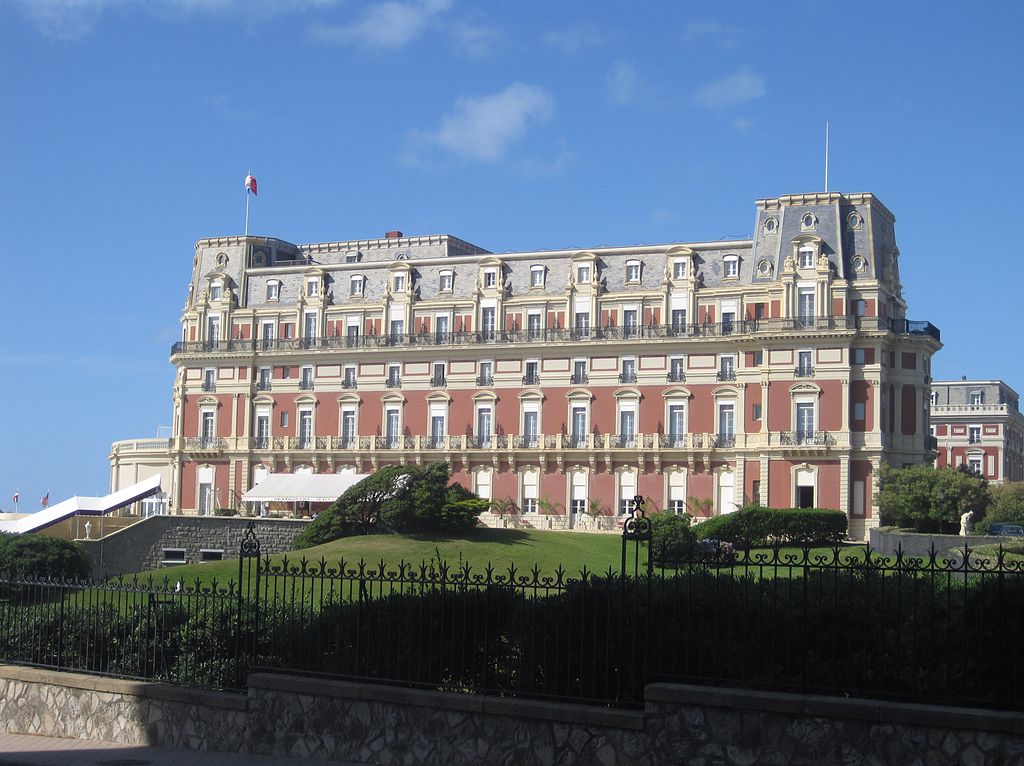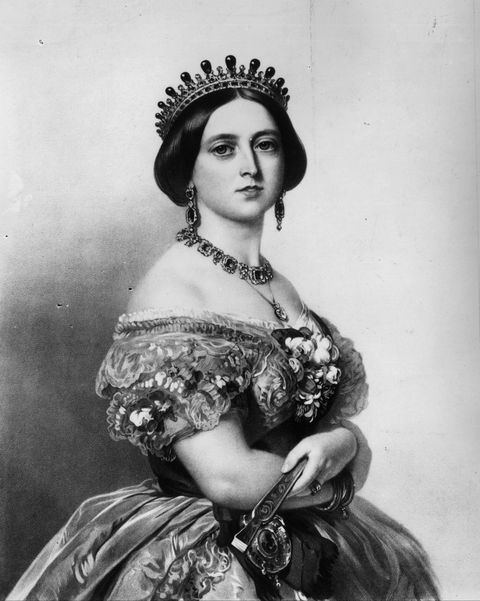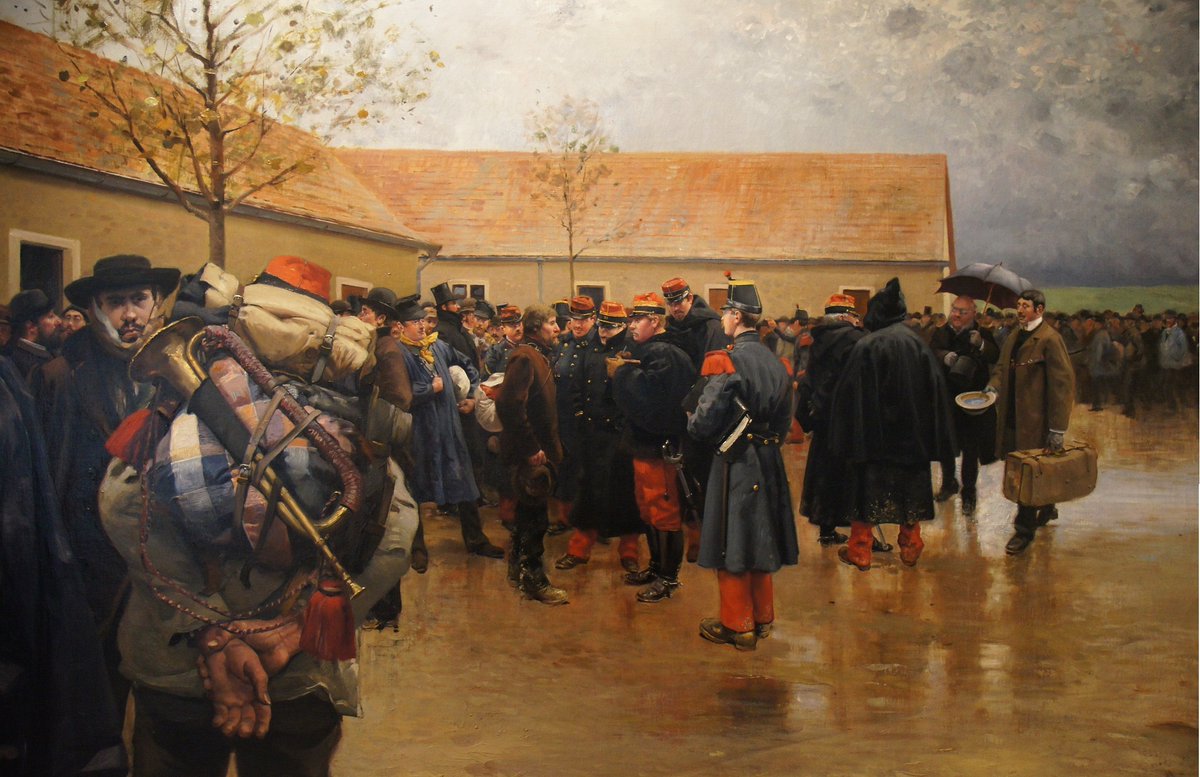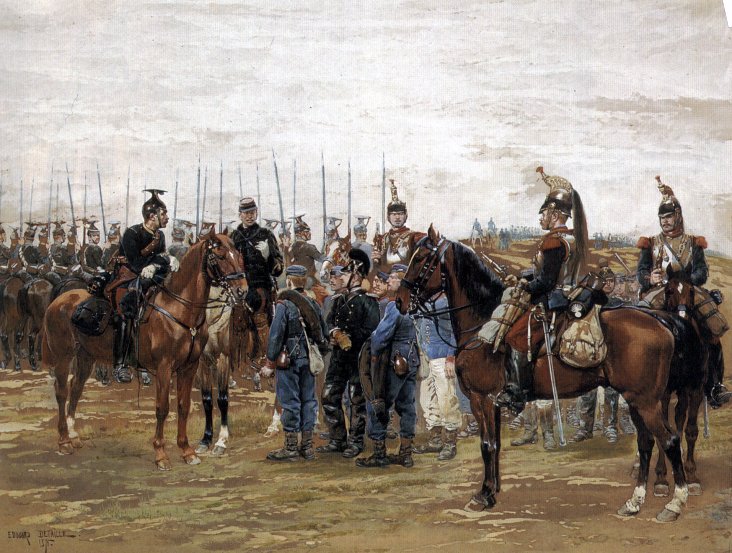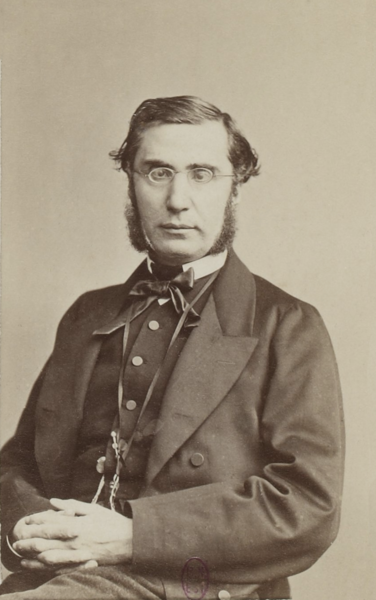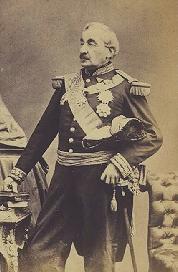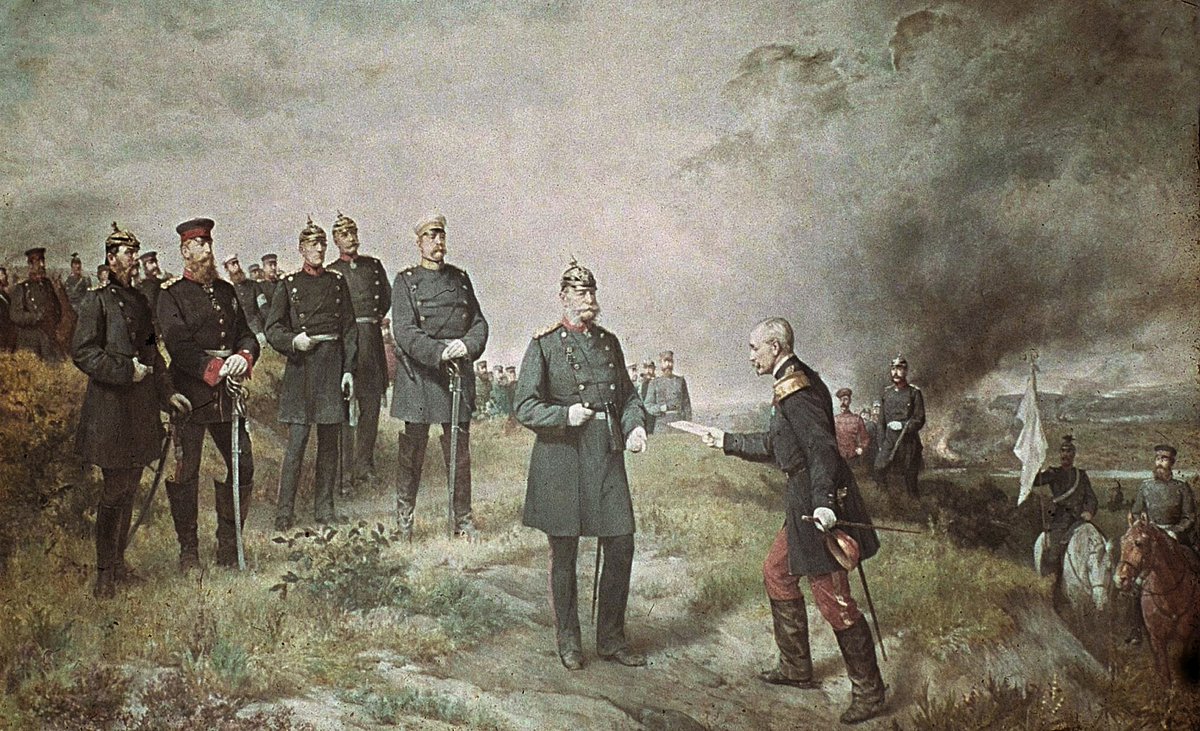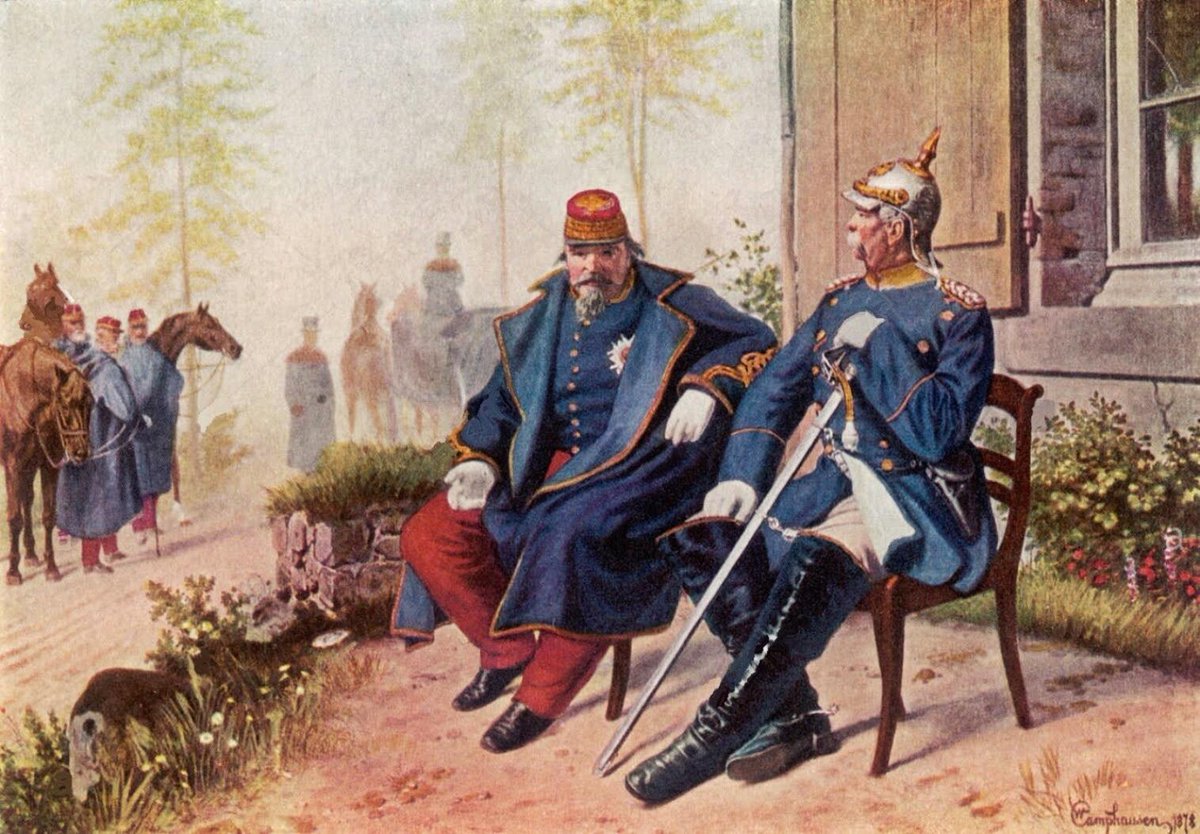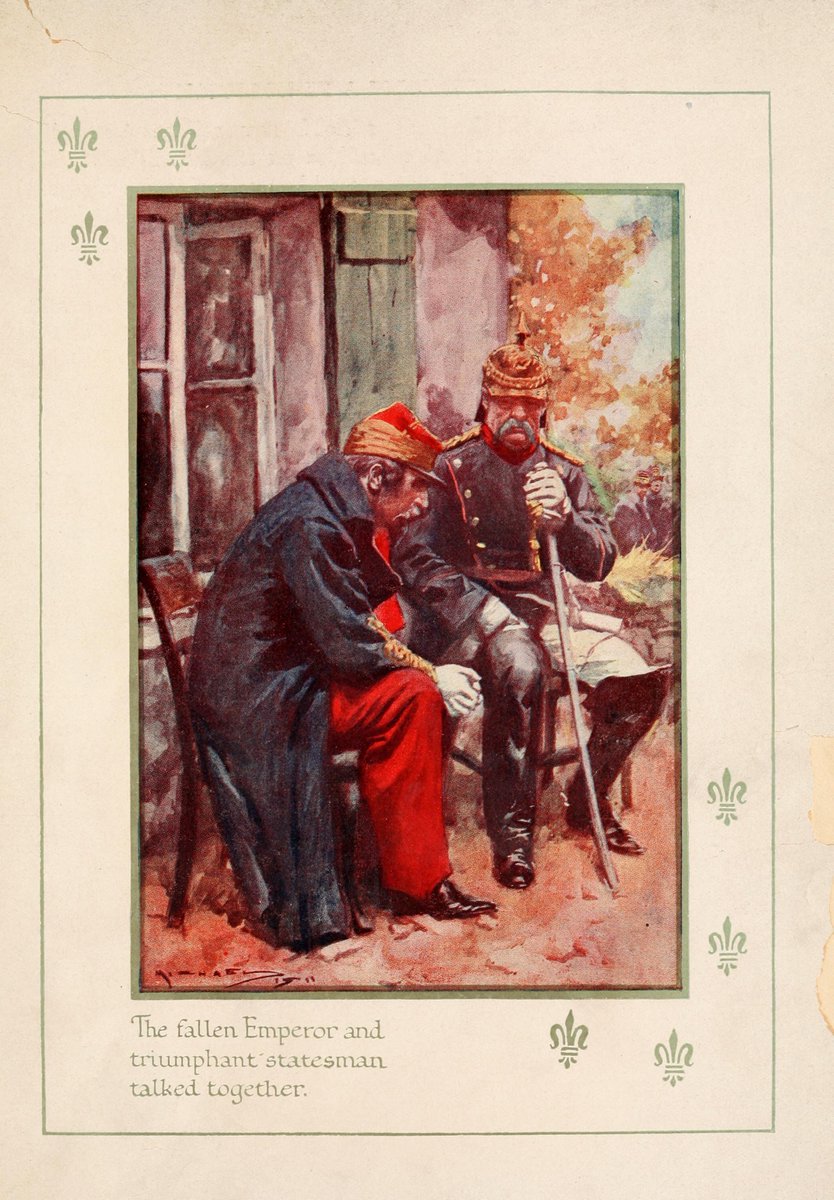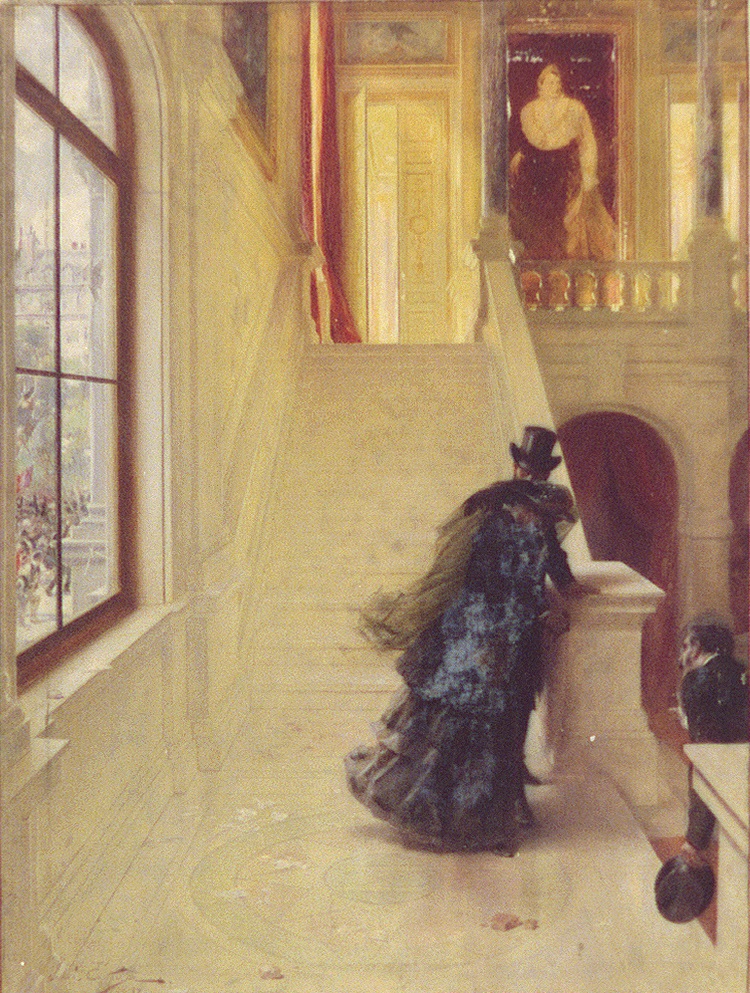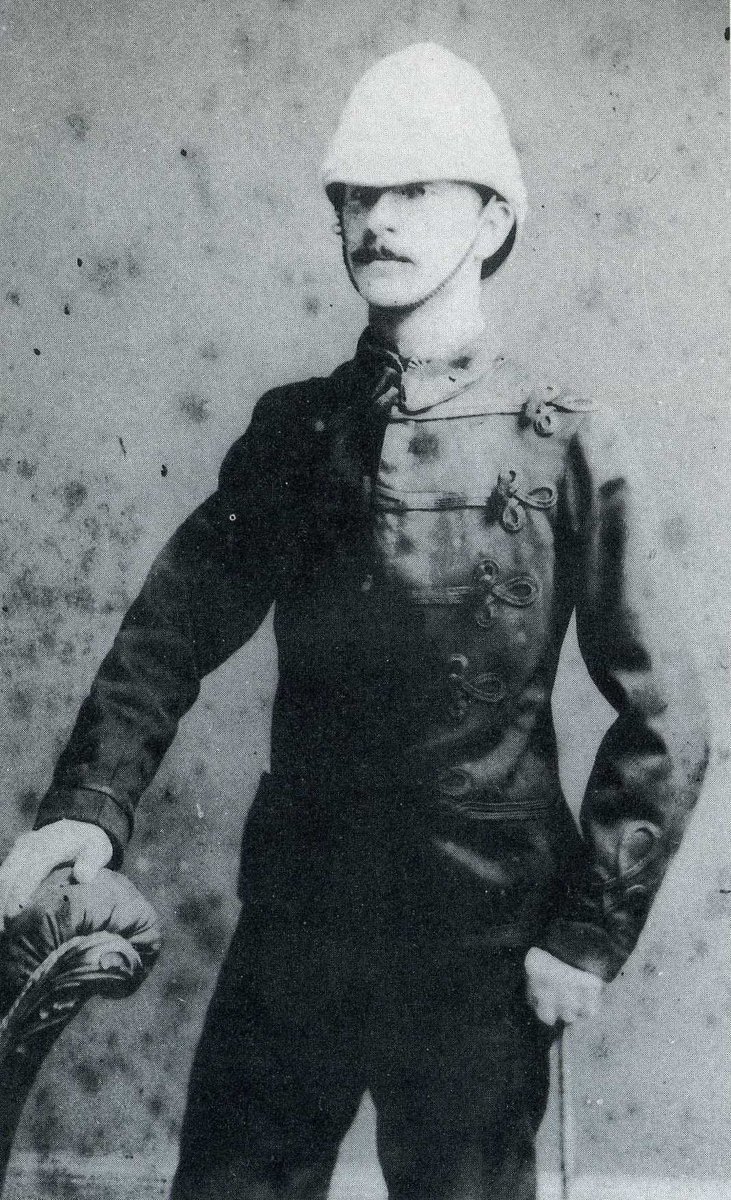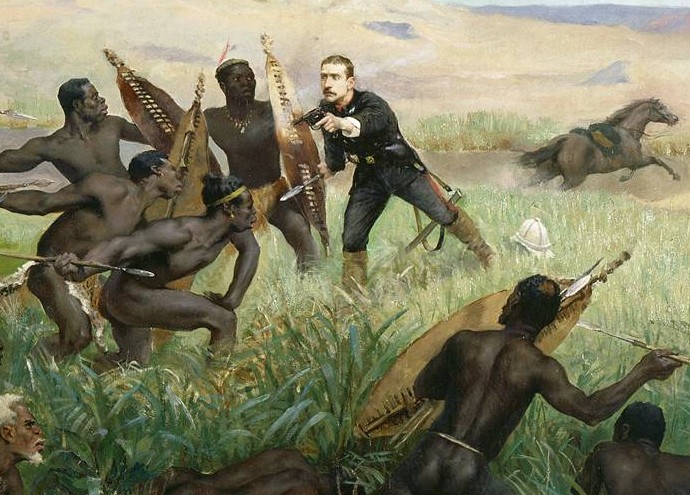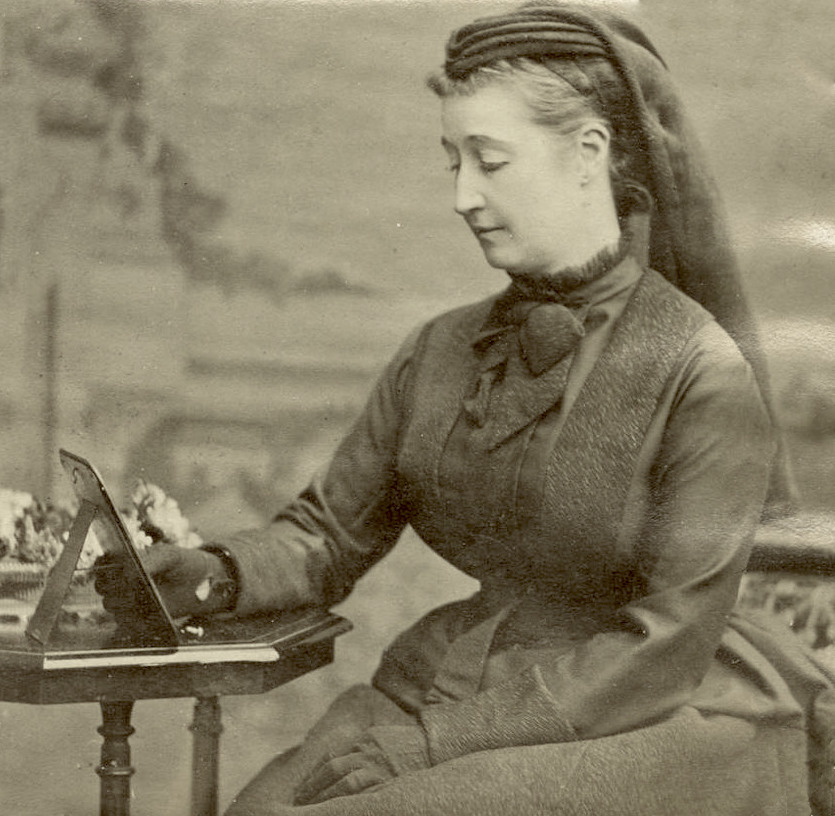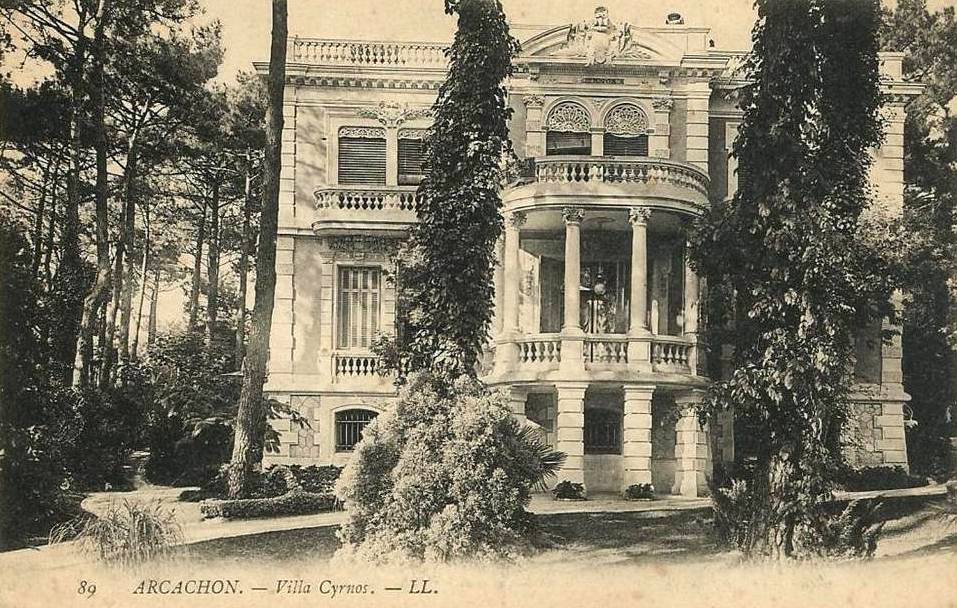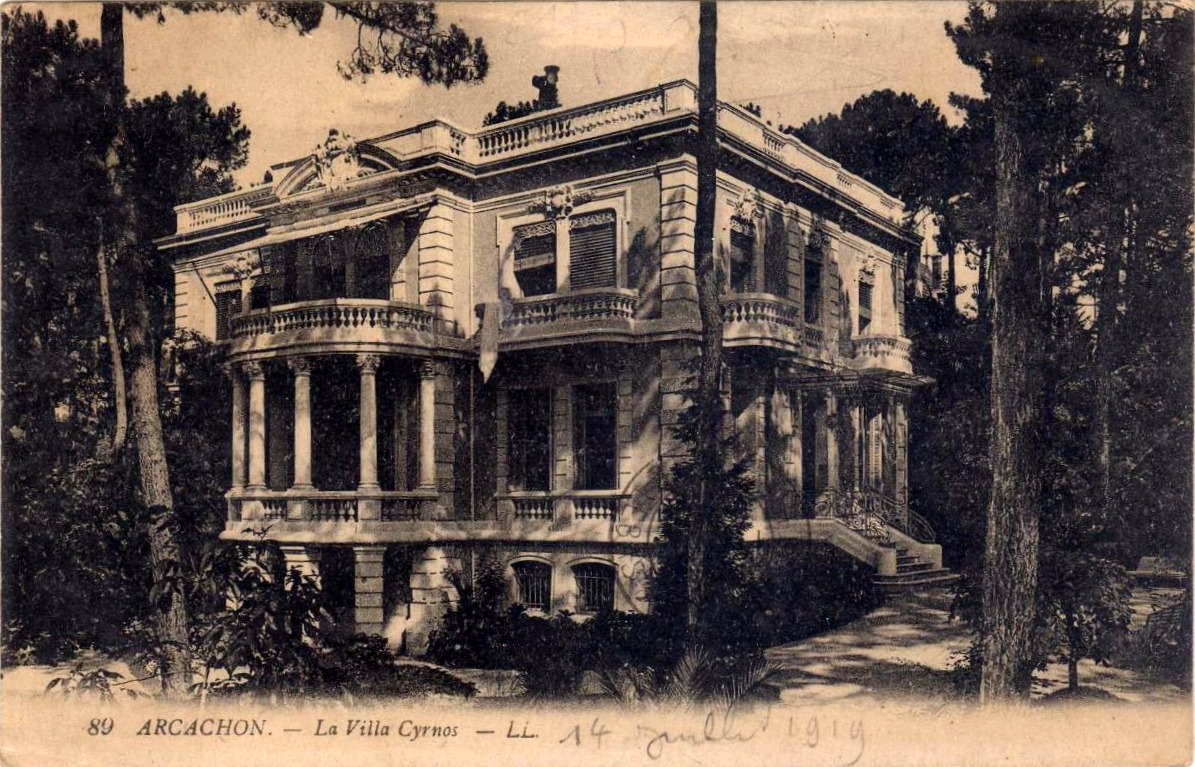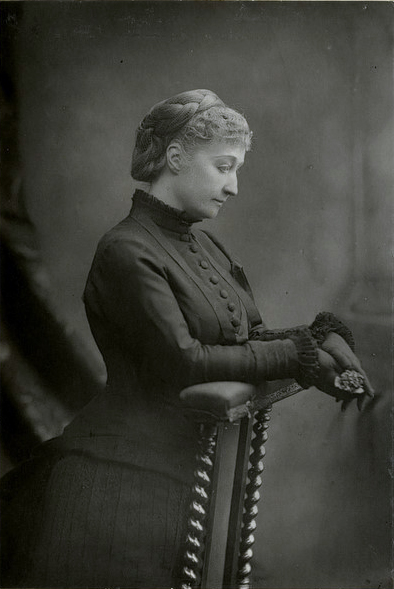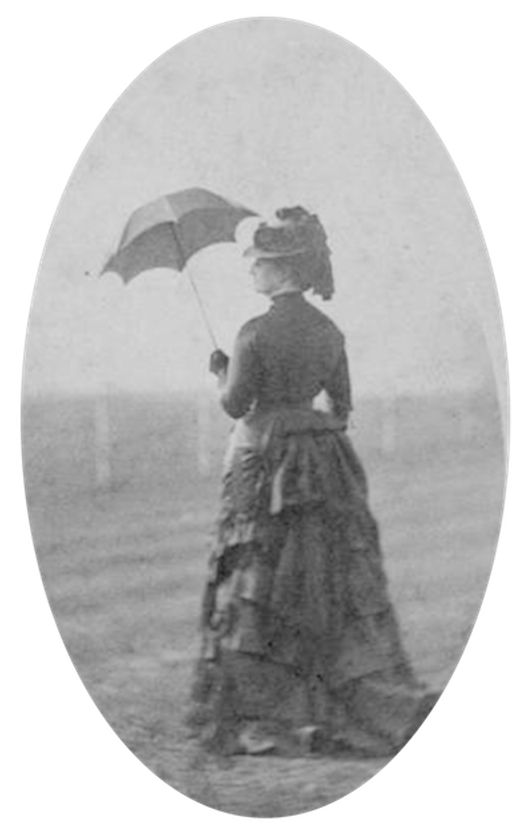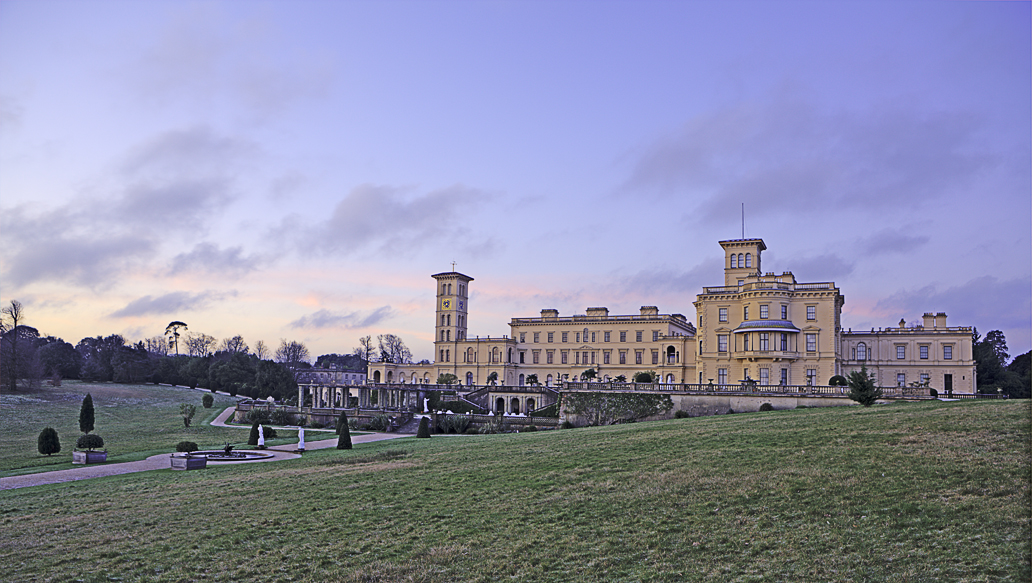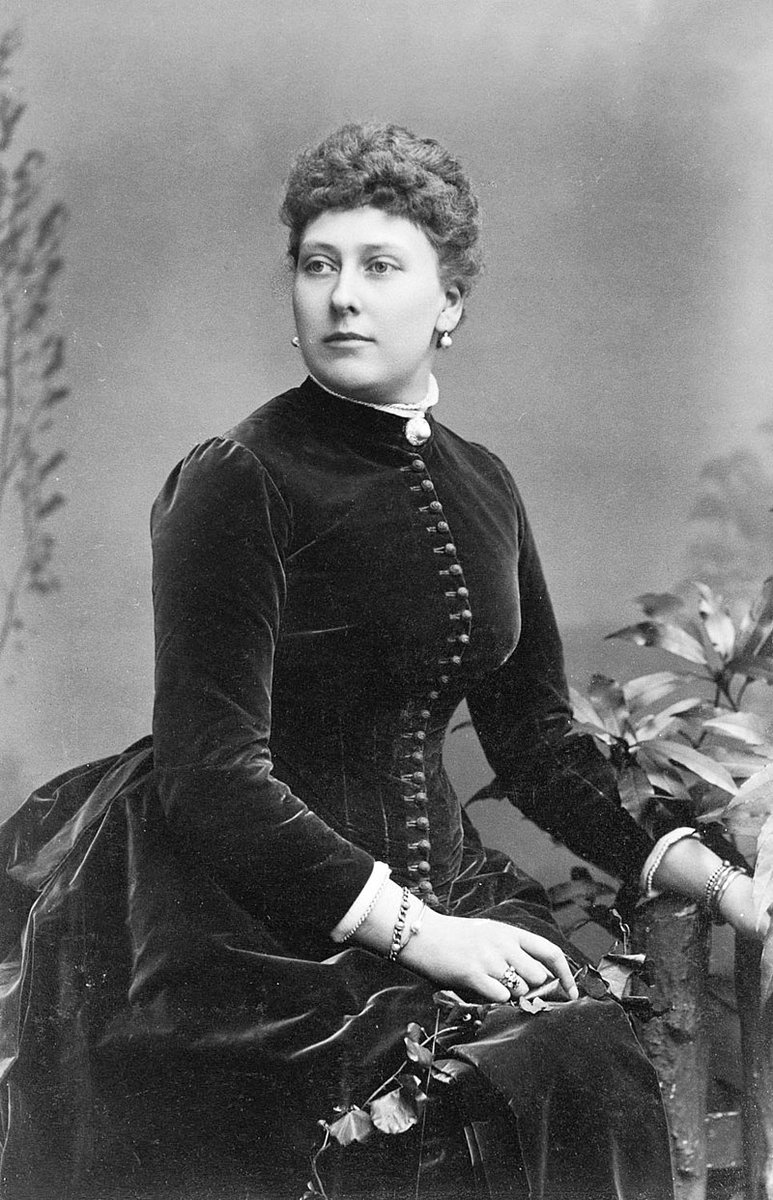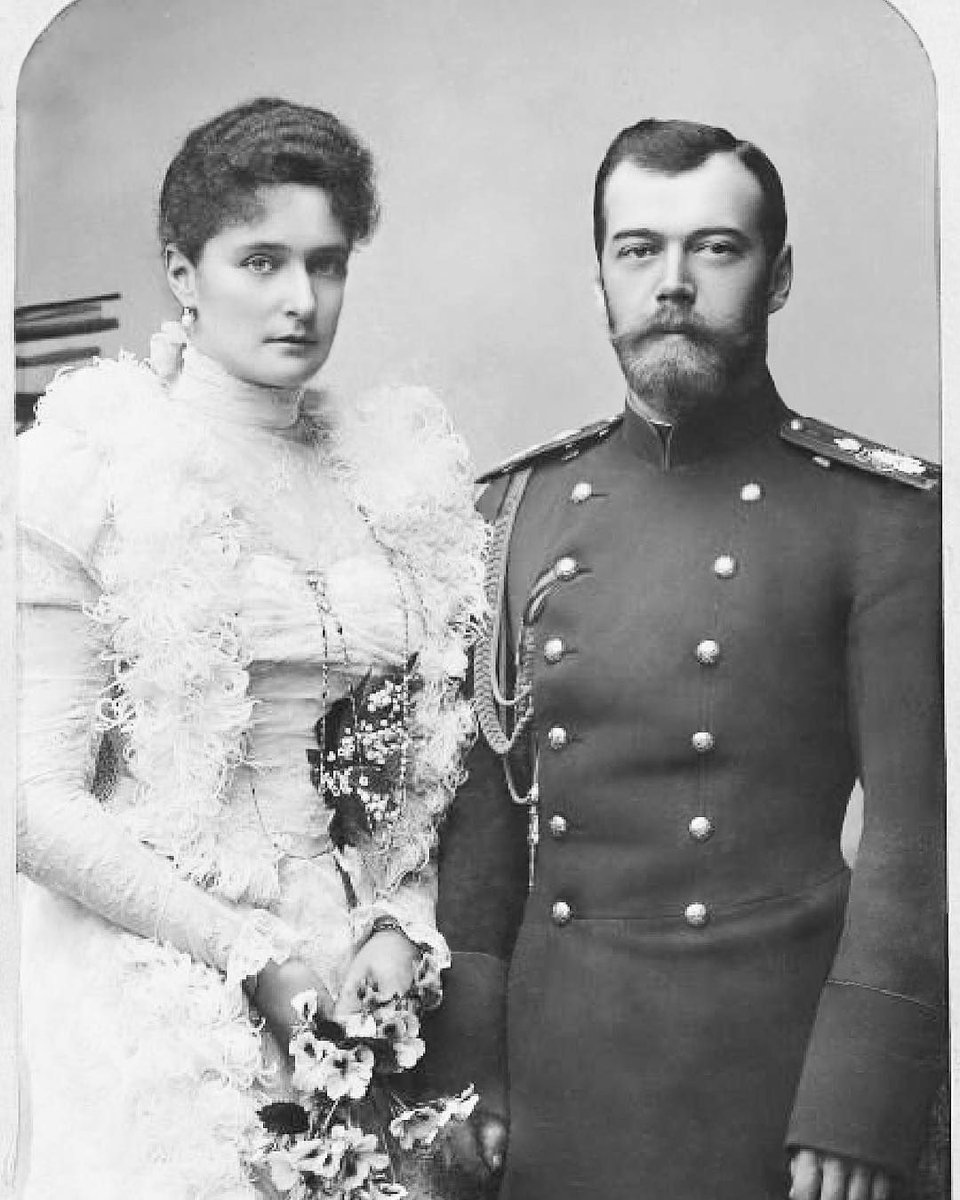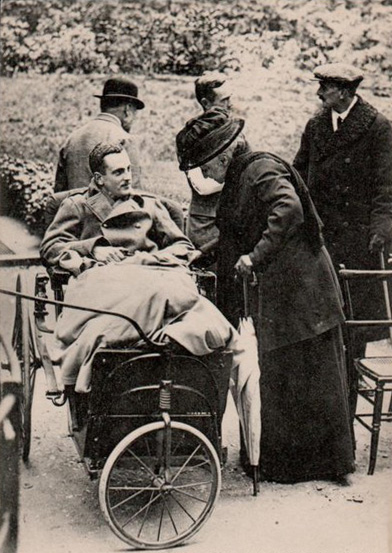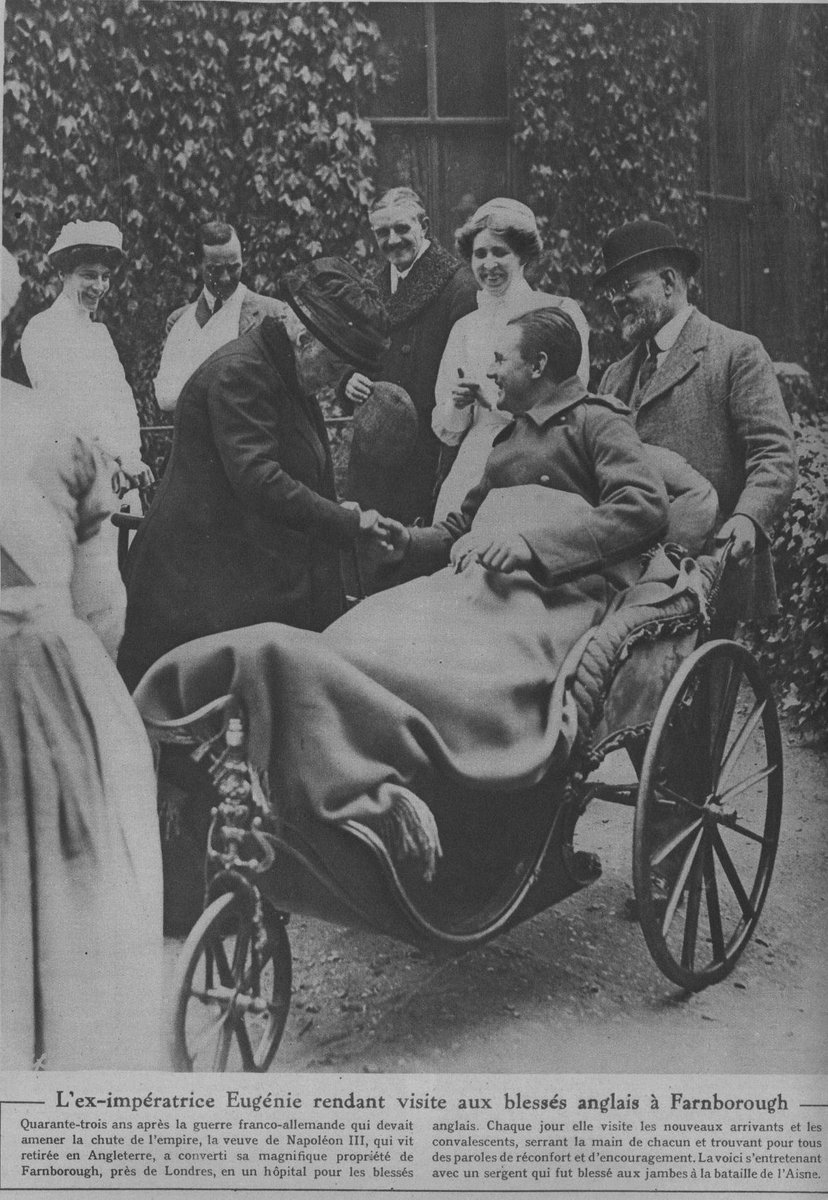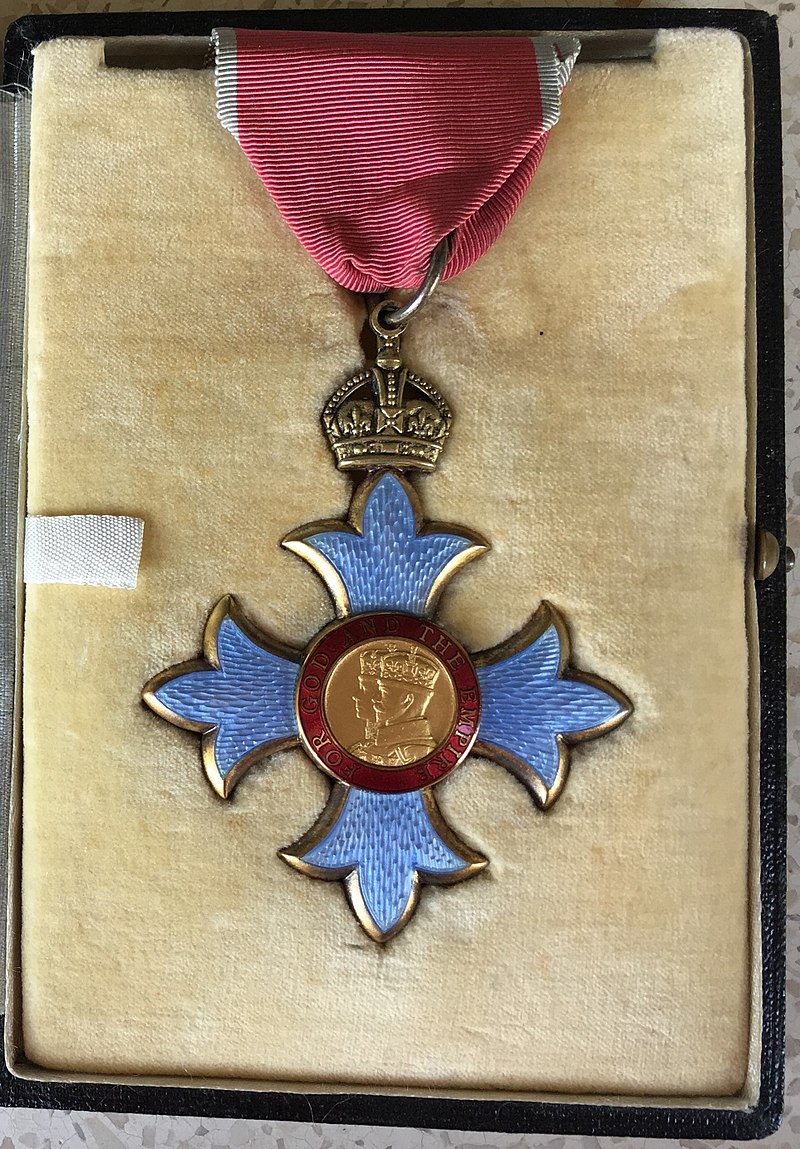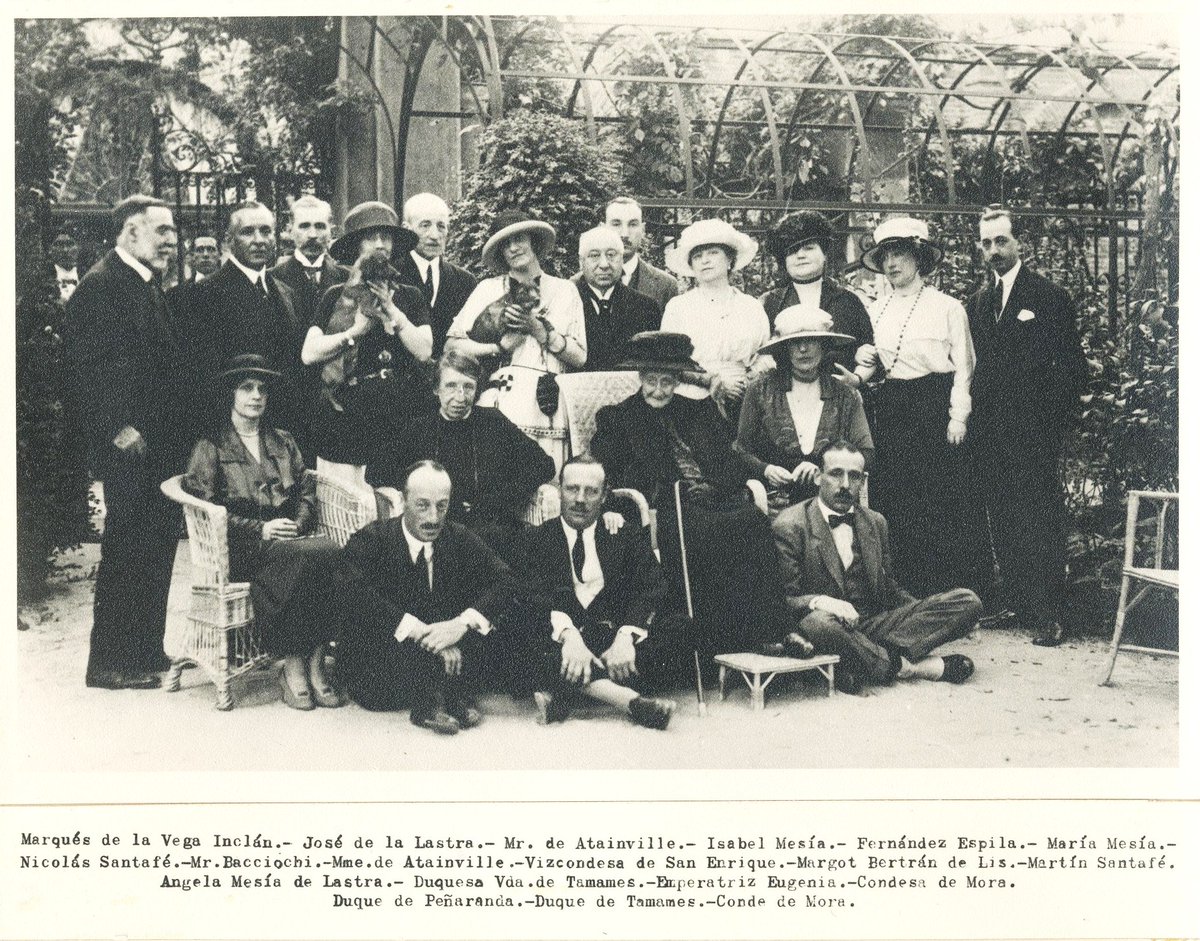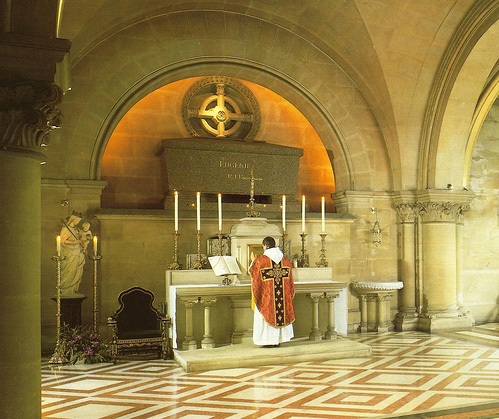Doña María Eugenia Ignacia Agustina de Palafox y Kirkpatrick, 16th Countess of Teba, 15th Marchioness of Ardales, known as Eugénie de Montijo, was the last empress of the French as the wife of Emperor Napoleon III.
His father was Don Cipriano de Palafox y Portocarrero , Grande, whose titles included 15th duke of Peñaranda de Duero, 8th count of Ablitas, 9th count of Montijo, 15th count of Teba, 8th count of Fuentidueña, etc
Her mother was half-Scottish, quarter-Belgian, quarter-Spanish María Manuela Enriqueta Kirkpatrick de Closbourn y de Grevigné.
Eugenia's older sister, María Francisca de Sales de Palafox Portocarrero y Kirkpatrick, nicknamed "Paca", who inherited most of the family honours and was 12th duchess of Peñaranda.
She was Grande of Spain and 9th countess of Montijo, title later ceded to her sister, and married the 15th duke of Alba in 1849.
Until her marriage in 1853, Eugénie variously used the titles of countess of Teba or countess of Montijo, but some family titles were inherited by her elder sister, through which they passed to the House of Alba.
After the death of her father, Eugenia became the 9th countess of Teba, and is named as such in the Almanach de Gotha (1901 edition). After Eugenia's demise, all titles of the Montijo family came to the Fitz-Jameses (the dukes of Alba and Berwick).
On 18 July 1834, María Manuela and her daughters left Madrid for Paris, fleeing a cholera outbreak and the dangers of the First Carlist War. The previous day, Eugenia had witnessed a riot and murder in the square outside their residence, Casa Ariza.
Eugénie de Montijo, as she became known in France, was formally educated mostly in Paris, beginning at the fashionable, traditionalist Convent of the Sacré Cœur from 1835 to 1836.
In 1837, Eugénie and Paca briefly attended a boarding school for girls on Royal York Crescent in Clifton, Bristol, to learn English.
Eugénie was teased as "Carrots", for her red hair, and tried to run away to India, making it as far as climbing on board a ship at Bristol docks.
In March 1839, on the death of their father in Madrid, the girls left Paris to rejoin their mother there. In Spain, Eugénie grew up into a headstrong and physically daring young woman, devoted to horseriding and a range of other sports.
She was very interested in politics and became devoted to the Bonapartist cause, under the influence of Eleanore Gordon, a former mistress of Louis Napoléon.
Because her mother's role as a lavish society hostess, Eugénie became acquainted with Isabel II and the prime minister Ramón Narváez.
María Manuela was increasingly anxious to find a husband for her daughter, and took her on trips to Paris again in 1849 and England in 1851.
She first met Prince Louis Napoléon after he had become president of the Second Republic with her mother at a reception given by the "prince-president" at the Élysée Palace on 12 April 1849.
Her beauty attracted Louis Napoleon, who, as was his custom, tried to seduce her, but Eugénie told him to wait for marriage. "What is the road to your heart?" Napoleon demanded to know. "Through the chapel, Sire", she answered.
In a speech on 22 January 1853, Napoleon III, after having become emperor, formally announced his engagement, saying "I have preferred a woman whom I love and respect to a woman unknown to me, with whom an alliance would have had advantages mixed with sacrifices".
They were wed on 29 January 1853 in a civil ceremony at the Tuileries, and on the 30th, there was a grander religious ceremony at Notre Dame.
The marriage had come after considerable activity with regard to who would make a suitable match, often toward titled royals and with an eye to foreign policy. The final choice was opposed in many quarters and Eugénie considered of too little social standing by some.
Eugénie found childbearing extraordinarily difficult. An initial miscarriage in 1853, after a three-month pregnancy, frightened and soured her.
On 16 March 1856, after a two-day labor that endangered mother and child and from which Eugénie made a very slow recovery, the empress gave birth to an only son, Napoléon Eugène Louis Jean Joseph Bonaparte, styled Prince Impérial.
After marriage, it didn't take long for her husband to stray as Eugénie found sex with him "disgusting". It is doubtful that she allowed further approaches by her husband once she had given him an heir.
He subsequently resumed his "petites distractions" with other women, such as Virginia Oldoini, Countess of Castiglione.
Eugénie faithfully performed the duties of an empress, entertaining guests and accompanying the emperor to balls, opera, and theater.
A very successful state visit by Napoleon and Eugénie to England in April 1855 was succeeded by another visit from Victoria, Albert and their two eldest children to Paris that August.
By the time they parted company, the queen was deeply impressed by Napoleon, whom she found “a very extraordinary man, with great qualities” who was “evidently possessed of indomitable courage, unflinching firmness of purpose, self-reliance, perseverance, and great secrecy”.
After her marriage, her ladies-in-waiting consisted of six (later more) dames du palais, most of whom were chosen from among the acquaintances to the empress before her marriage.
She traveled to Egypt to open the Suez Canal and officially represented her husband whenever he traveled outside France.
She strongly advocated equality for women; she pressured the Ministry of National Education to give the first baccalaureate diploma to a woman and tried unsuccessfully to induce the Académie française to elect the writer George Sand as its first female member.
Her husband often consulted her on important questions, and she acted as regent during his absences in 1859, 1865 and 1870. In 1860, she visited Algiers with Napoleon.
A Catholic and a conservative, her influence countered any liberal tendencies in the emperor's policies.
She was blamed for the fiasco of the French intervention in Mexico and the eventual death of Emperor Maximilian I of Mexico.
In 1854, the Emperor Napoleon III and Eugénie bought several acres of dunes in Biarritz and gave the engineer Dagueret the task of establishing a summer home surrounded by gardens, woods, meadows, a pond and outbuildings.
Napoleon III chose the location near Spain so his wife would not get homesick for her native country. The house was called the Villa Eugénie, today the Hôtel du Palais.
The presence of the imperial couple attracted other European royalty like Queen Victoria and made Biarritz well-known.
After the outbreak of the Franco-Prussian War in 1870, Eugénie remained in Paris as Regent while Napoleon III and the Prince Imperial travelled to join the troops at the German front.
When the news of several French defeats reached Paris on 7 August, it was greeted with disbelief and dismay. Prime Minister Émile Ollivier and the chief of staff of the army, Marshal Le Bœuf both resigned and Eugenie took it upon herself to name a new government
She chose General Cousin-Montauban, better known as the count of Palikao, 74 years old, as her new prime minister. The count of Palikao named Maréchal Francois Achille Bazaine, the commander of the French forces in Lorraine, as the new overall military commander.
Napoleon III proposed returning to Paris, realizing that he was doing no good for the army. The empress responded by telegraph: "Don't think of coming back, unless you want to unleash a terrible revolution. They will say you quit the army to flee the danger."
The emperor agreed to remain with the army. With the empress directing the country, and Bazaine commanding the army, the emperor no longer had any real role to play.
The army was ultimately defeated and Napoleon III gave himself up to the Prussians at the Battle of Sedan.
The news of the capitulation reached Paris on 3 September, and when it was given to the empress that the emperor and the army were prisoners, she reacted by shouting at the Emperor's personal aide:
"No! An emperor does not capitulate! He is dead!...They are trying to hide it from me. Why didn't he kill himself! Doesn't he know he has dishonored himself?!"
Later, when hostile crowds formed near the Tuileries palace, and the staff began to flee, the empress slipped out with one of her entourage and sought sanctuary with her American dentist, Thomas W. Evans, who took her to Deauville.
From there, on 7 September, she took the yacht of a British official to England. In the meantime, on 4 September, a group of republican deputies proclaimed the return of the Republic, and the creation of a Government of National Defense.
From 5 September 1870 until 19 March 1871, Napoleon III and his entourage including Joseph Bonaparte's grandson Louis Joseph Benton, were held in comfortable captivity in a castle at Wilhelmshöhe, near Kassel. Eugénie traveled incognito to Germany to visit Napoleon.
When the Second Empire was overthrown after France's defeat in the Franco-Prussian War, the empress and her husband took permanent refuge in England, and settled at Camden Place in Chislehurst, Kent.
In 1885, she moved to Farnborough, Hampshire, and to the Villa Cyrnos which was built for her at Cape Martin, between Menton and Nice, where she lived in retirement, abstaining from politics.
After the deaths of her husband and son, as her health started to deteriorate, she spent some time at Osborne House on the Isle of Wight; her physician recommended she visit Bournemouth which was famed as a health spa resort
Her deposed family's friendly association with the United Kingdom was commemorated in 1887 when she became the godmother of Victoria Eugenie of Battenberg, daughter of Princess Beatrice.
She was also close to Empress Consort Alexandra Feodorovna of Russia, who last visited her, along with Emperor Nicholas II, in 1909.
On the outbreak of World War I, she donated her steam yacht Thistle to the British Navy. She funded a military hospital at Farnborough Hill as well as making large donations to French hospitals.
The former empress died in July 1920, aged 94, during a visit to her relative the 17th duke of Alba, at the Liria Palace in Madrid in her native Spain
She is buried in the Imperial Crypt at St Michael's Abbey, Farnborough, with her husband and her son.

 The end
The end 

I'm EXHAUSTED, so If you're reading this, I want you to know that I love you and that I want to kiss your forehead


 Read on Twitter
Read on Twitter